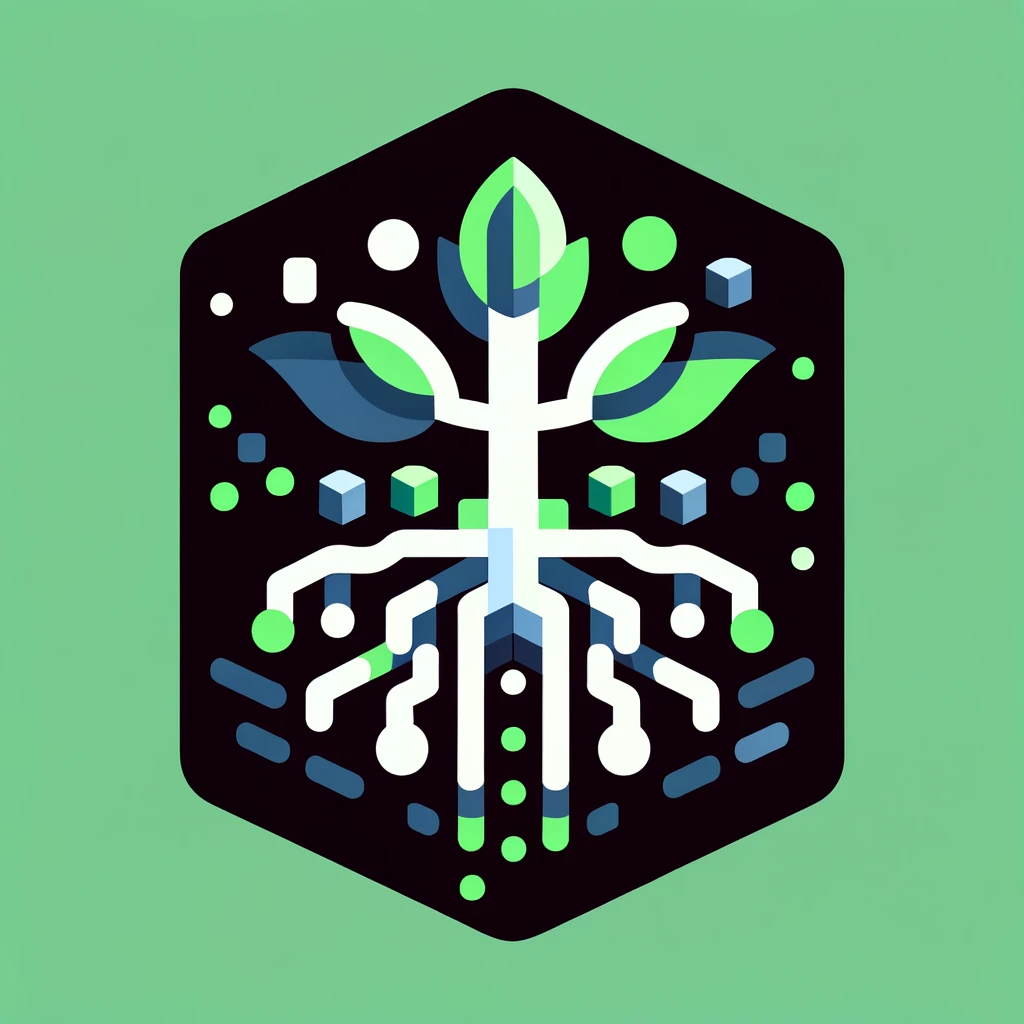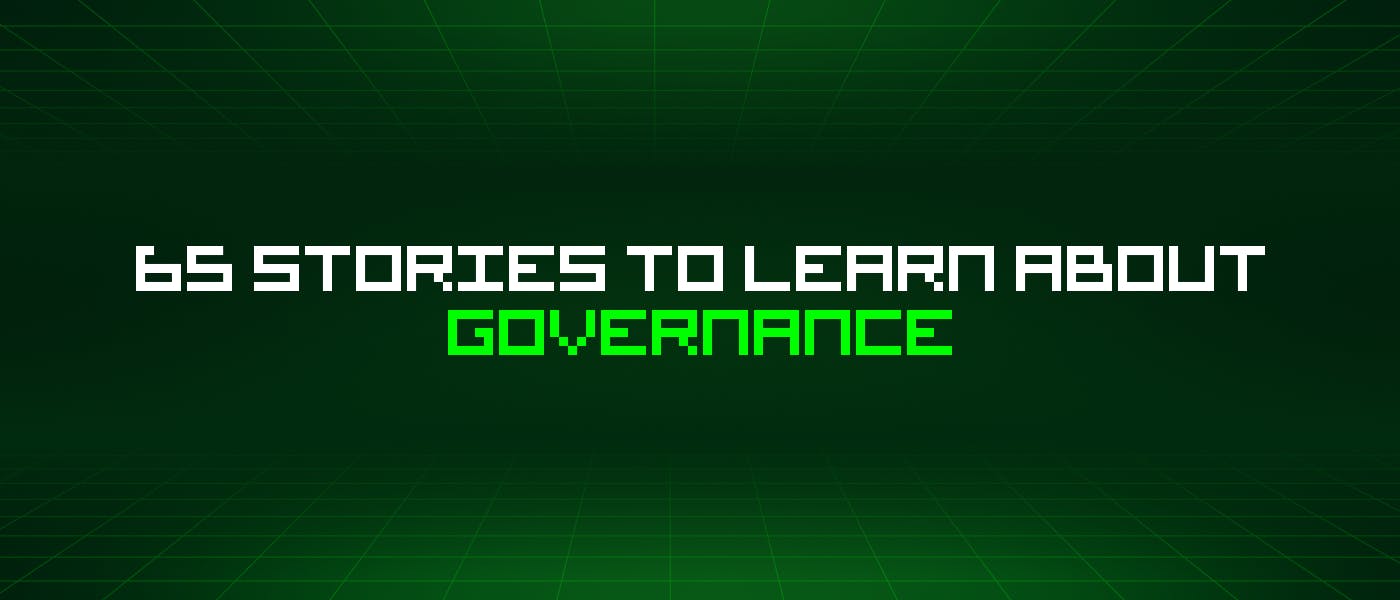Let's learn about Governance via these 65 free stories. They are ordered by most time reading created on HackerNoon. Visit the /Learn Repo to find the most read stories about any technology.
1. Alternatives to Corporate Consciousness
 We must conceive of a new kind of group consciousness, something alternative to corporate consciousness, that is capable of production on a large scale.
We must conceive of a new kind of group consciousness, something alternative to corporate consciousness, that is capable of production on a large scale.
2. Decentralized Voting System for the Blockchain Community
 RSquad Blockchain Lab programmers about the development of a smart contract voting system for Free TON Governance.
RSquad Blockchain Lab programmers about the development of a smart contract voting system for Free TON Governance.
3. The Cosmos We’ve All Been Waiting For
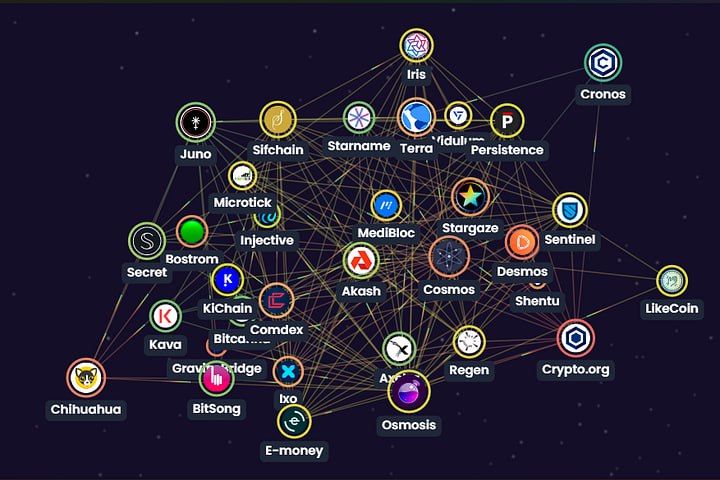 In 2023, one of the oldest blockchain ecosystems will begin to deliver on its original promise at the scale many have hoped for.
In 2023, one of the oldest blockchain ecosystems will begin to deliver on its original promise at the scale many have hoped for.
4. Make Money by Writing About the Decentralized Internet!
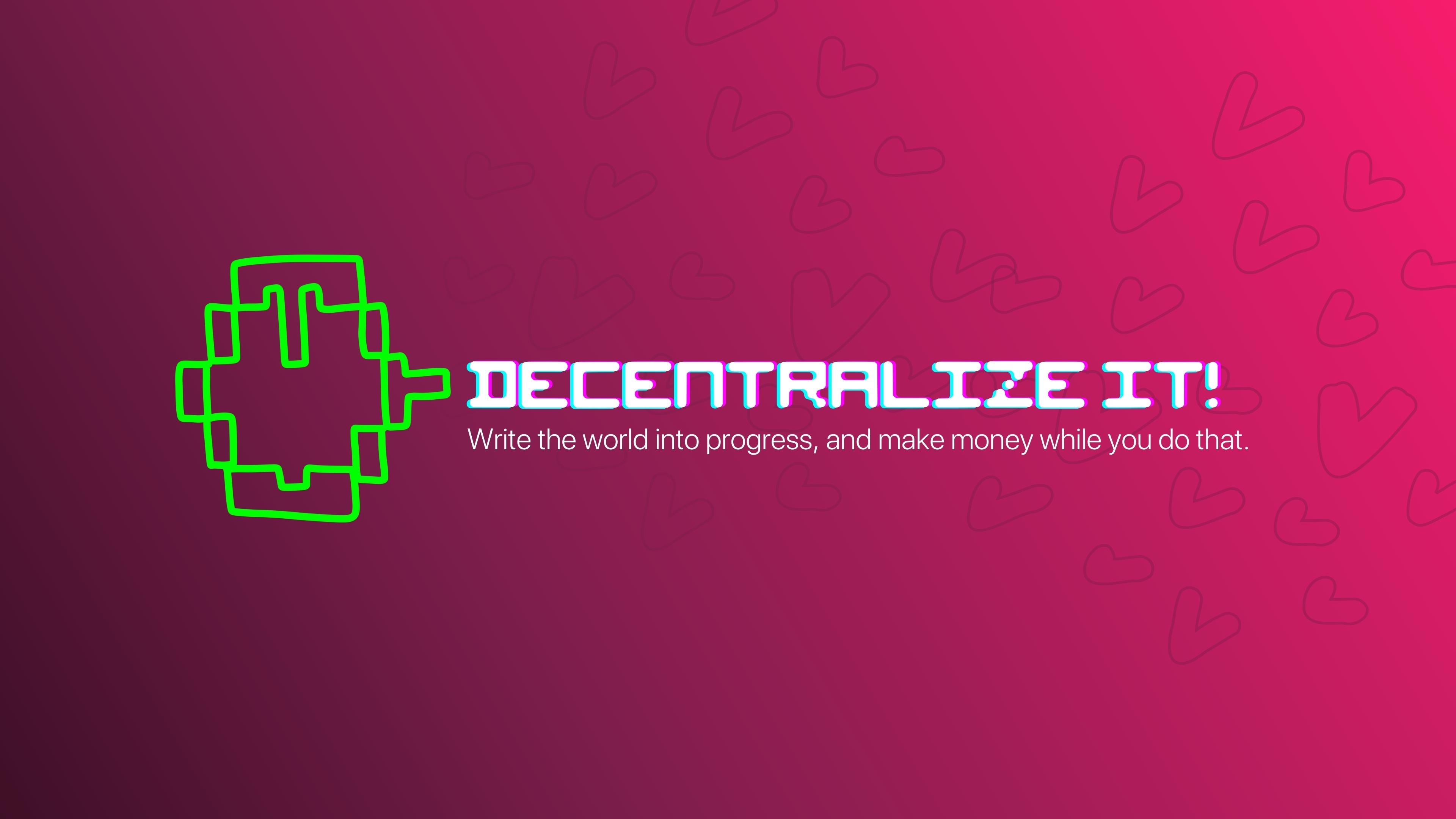 It’s time to guide those who ‘can't find Web3’ in the right direction.
It’s time to guide those who ‘can't find Web3’ in the right direction.
5. An Essential Guide to IAM (Identity Access Management) in 2022
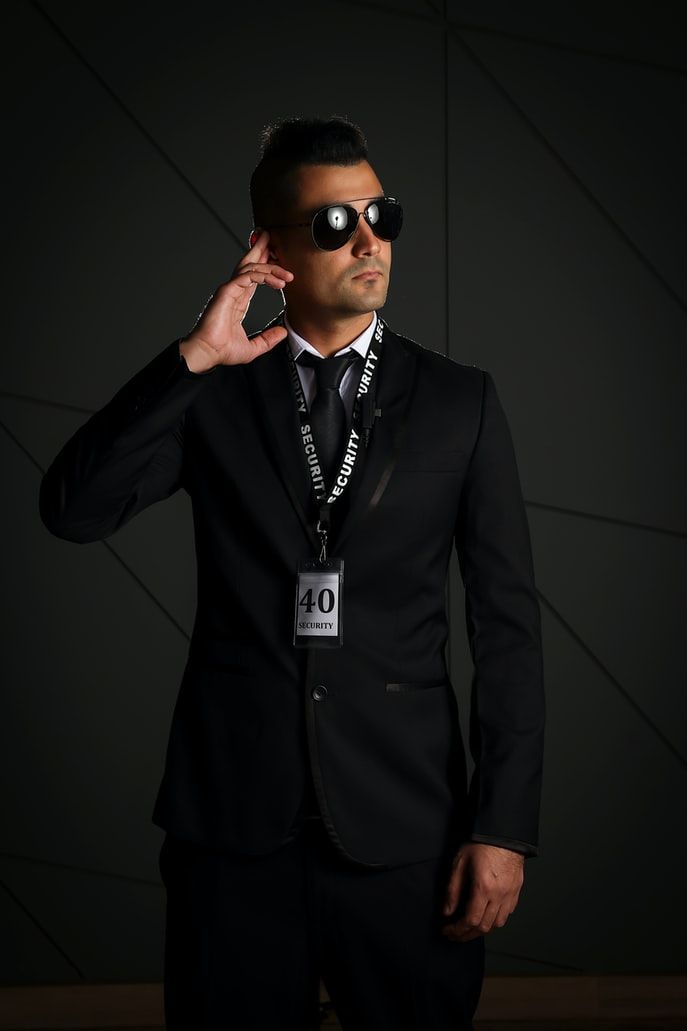 The term IAM is one of the common you hear in cloud-native environments. What does such a system do? A fast and pragmatic introduction to IAM
The term IAM is one of the common you hear in cloud-native environments. What does such a system do? A fast and pragmatic introduction to IAM
6. iZUMi Finance brings DAO based veNFT Governance with Quadratic Voting
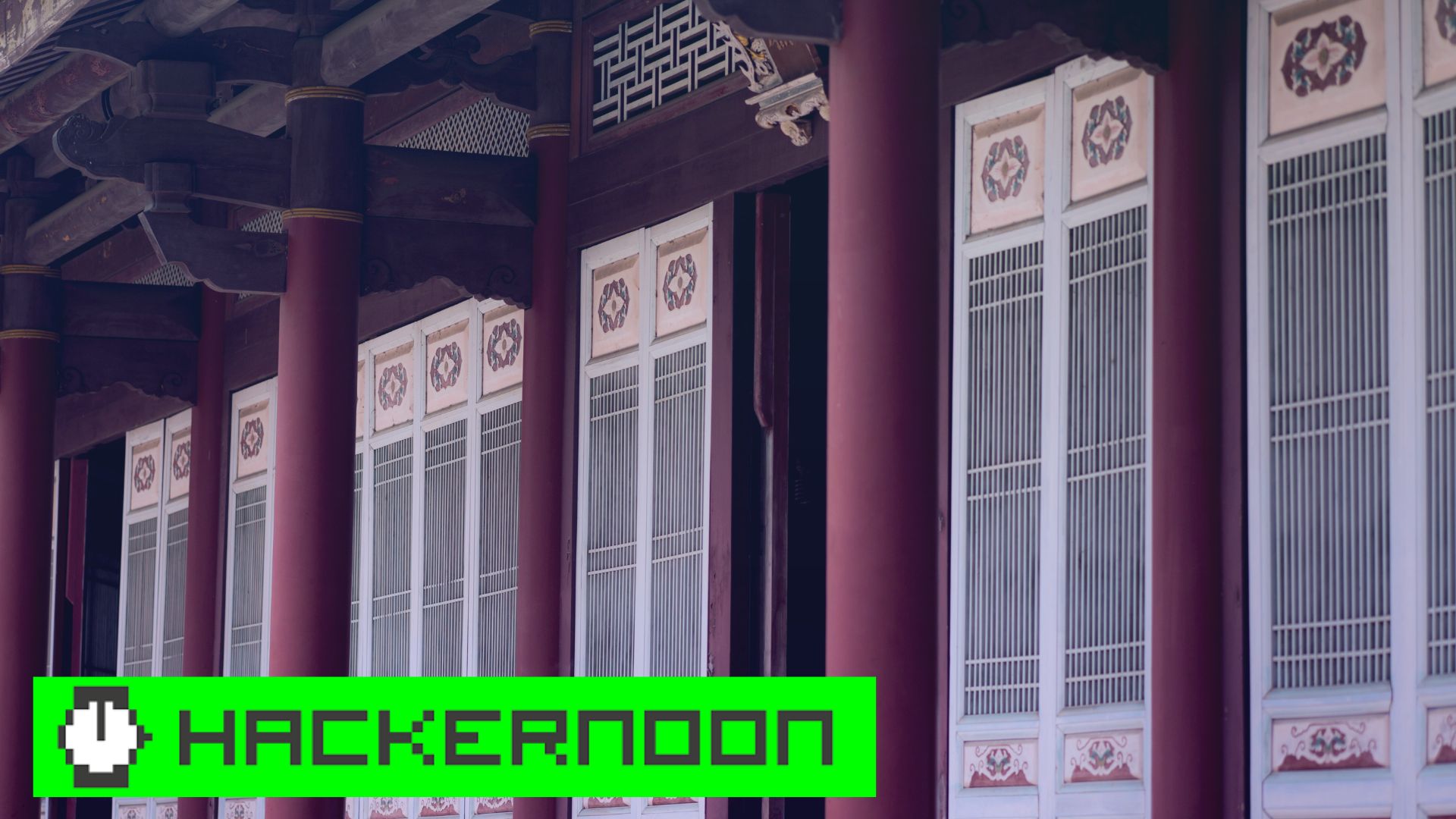 iZUMi Finance, a protocol that enables programmable liquidity mining on Uniswap V3, has announced the introduction of its decentralized autonomous organization.
iZUMi Finance, a protocol that enables programmable liquidity mining on Uniswap V3, has announced the introduction of its decentralized autonomous organization.
7. On The Issues of Grant Process
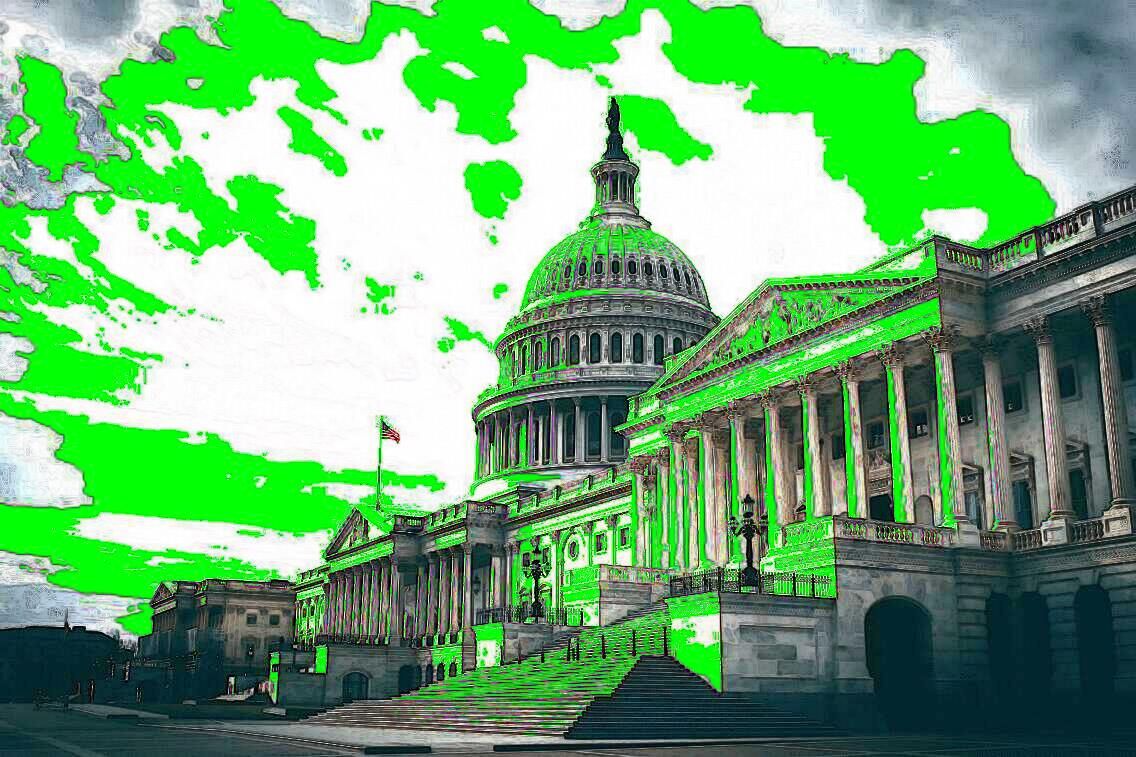 In 2019, the value of U.S. venture capital investments was $108 billion. In the same year, the federal government spent $131 billion on research and development.
In 2019, the value of U.S. venture capital investments was $108 billion. In the same year, the federal government spent $131 billion on research and development.
8. Buidling DAO-As-A-Service For Energy Efficient Decentralized Governance
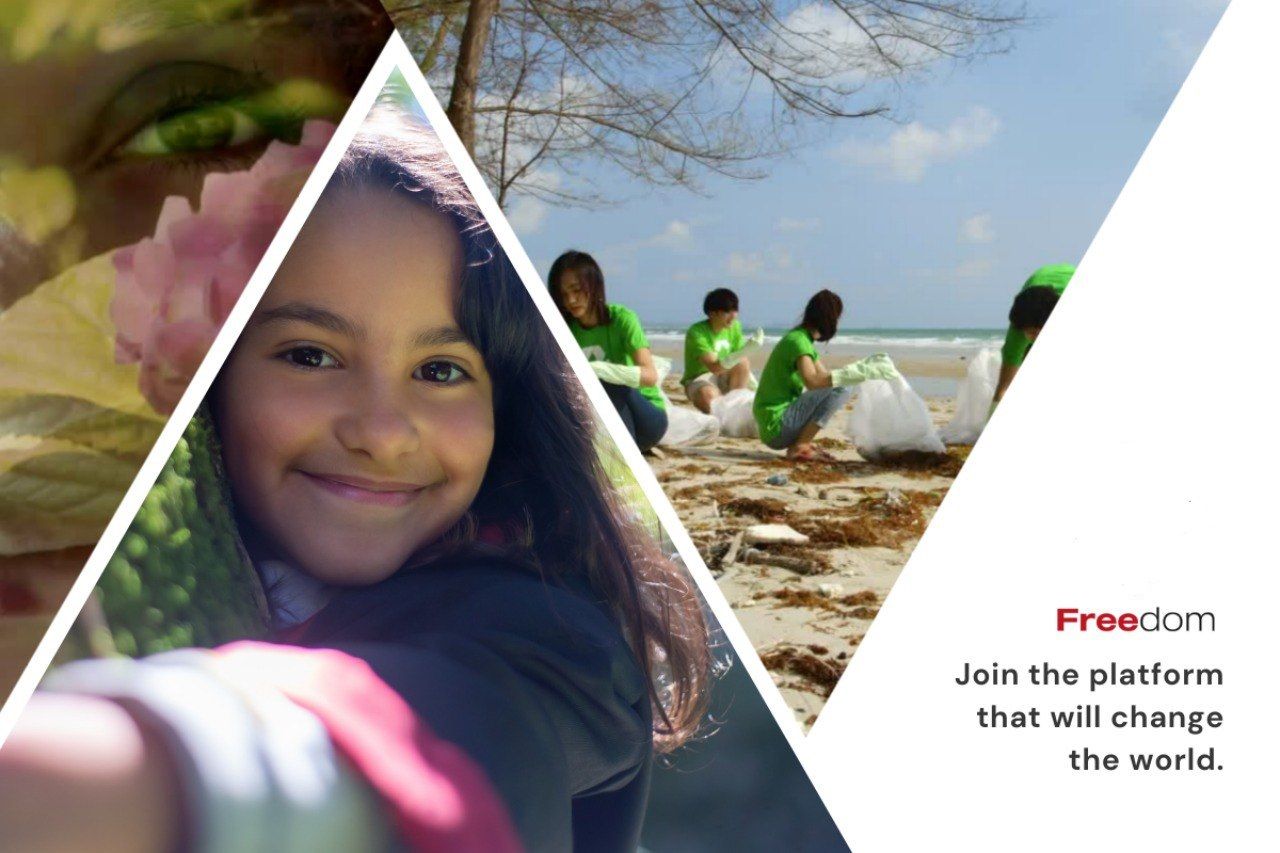 The shortcomings of conventional organizations and systems of collaboration lead to problems such as mismanagement of resources
The shortcomings of conventional organizations and systems of collaboration lead to problems such as mismanagement of resources
9. SORA Governance: The Wisdom of The Crowds.
 How can a randomly selected governance, prevent corruption and directly improve all financial sectors?
How can a randomly selected governance, prevent corruption and directly improve all financial sectors?
SORA Parliament model will answer this question.
10. How To Review a Governance Action
 Governors approving a change should know which functions are being called, what parameters are being used, and what effects these will have.
Governors approving a change should know which functions are being called, what parameters are being used, and what effects these will have.
11. European Parliament under Cyberattack after Declaring Russia ‘State Sponsor of Terrorism’
 Strong indication that the hacking team responsible is called Killnet, a pro-Russia organization
Strong indication that the hacking team responsible is called Killnet, a pro-Russia organization
12. Why 2022 Will Be the Year of the DAOs
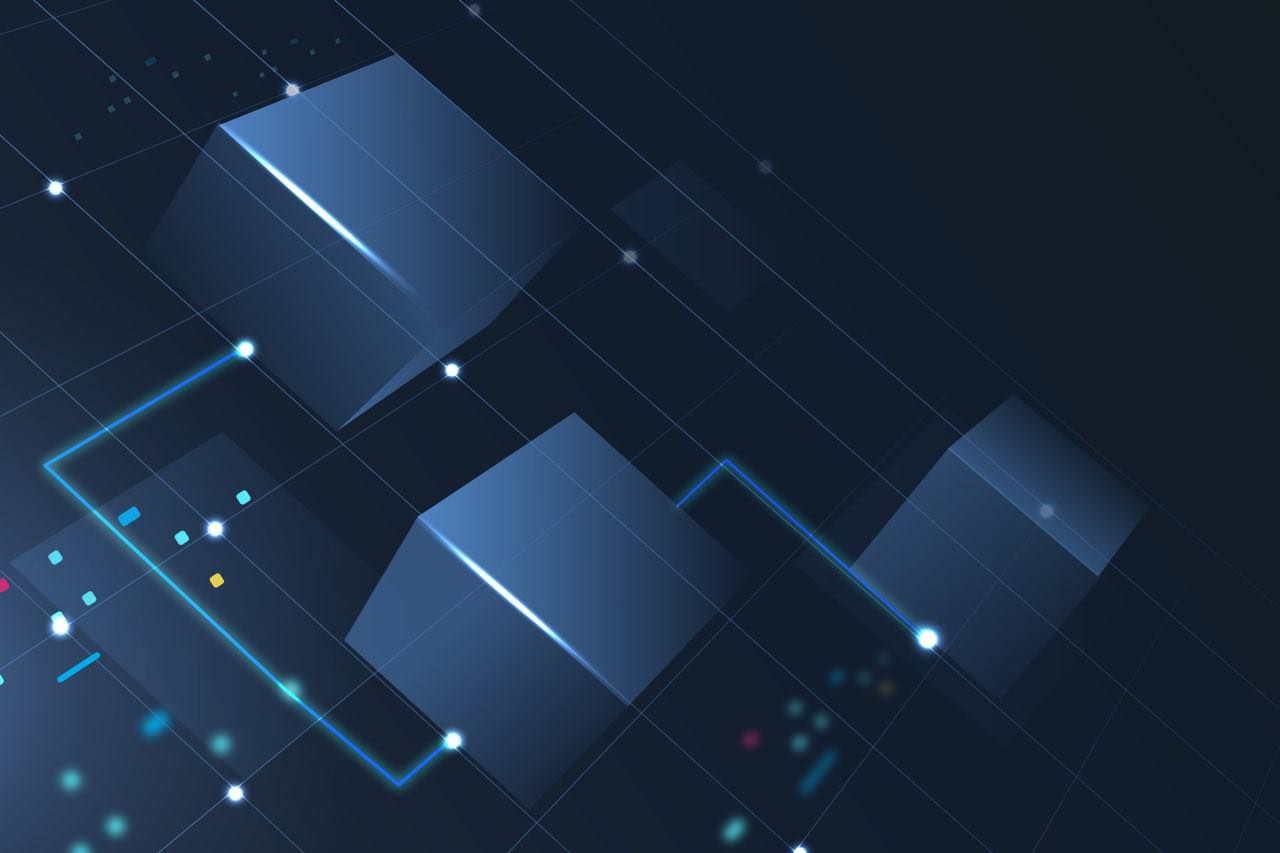 DAO developers believe that they can eliminate human manipulation or error from how companies work. This way, decisions are geared towards profitability alone.
DAO developers believe that they can eliminate human manipulation or error from how companies work. This way, decisions are geared towards profitability alone.
13. Moon Rabbit's Trading Volume Exceeded $10M Following Its Listing On Uniswap
 Moon Rabbit uses a Substrate-based scalability solution that permits a multi-level blockchain launch.
Moon Rabbit uses a Substrate-based scalability solution that permits a multi-level blockchain launch.
14. The Next Version Of Colony is Called Old Colony And It Makes Sense
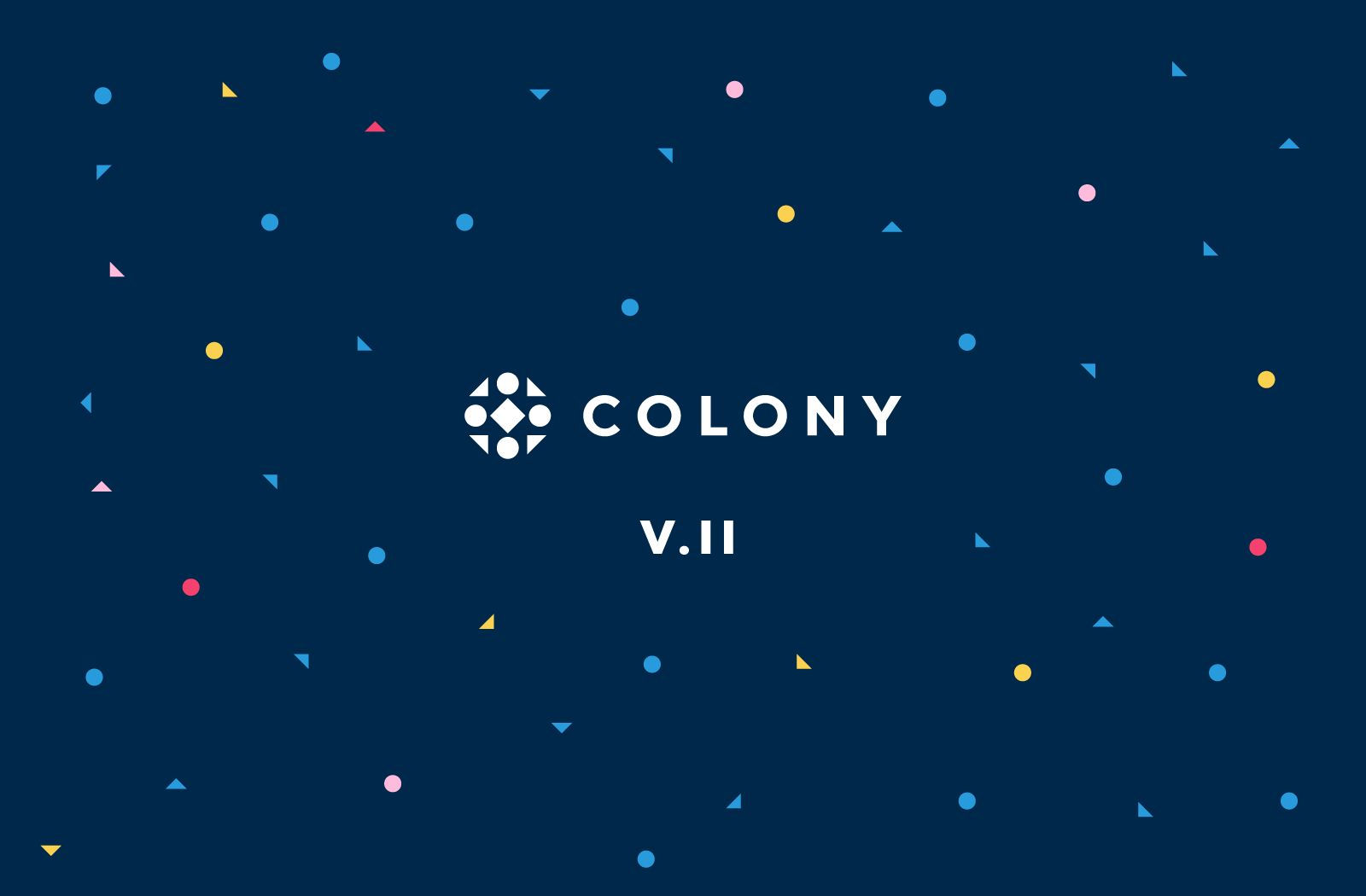 Which confusingly, is old Colony. Colony of the Whitepaper. Colony as advertised. Colony as it always should have been
Which confusingly, is old Colony. Colony of the Whitepaper. Colony as advertised. Colony as it always should have been
15. Why Outsourcing Core Business Functions Can Be Dangerous
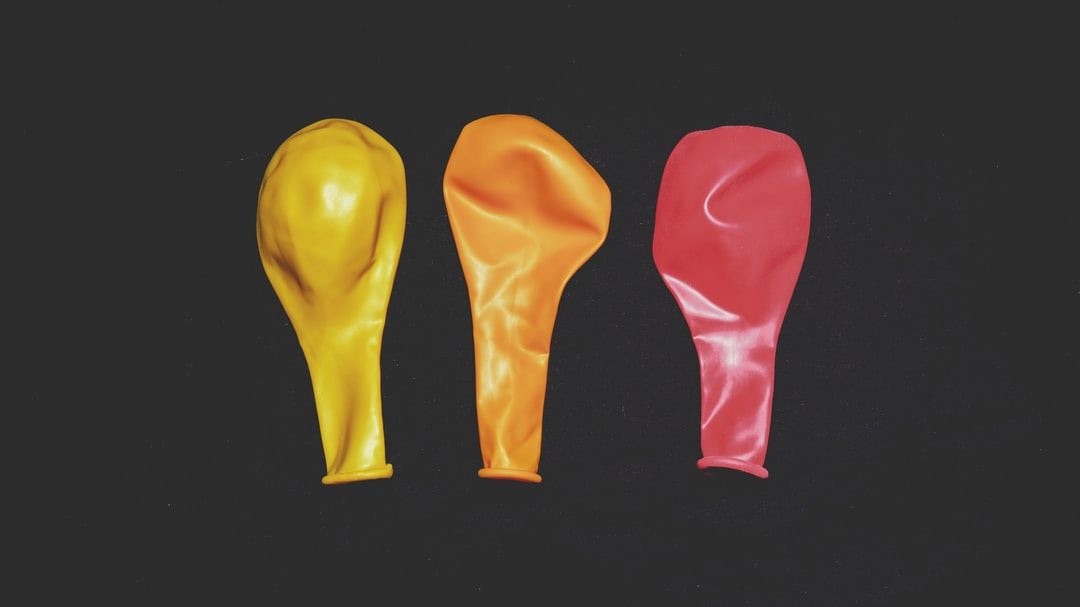 Outsourcing a core business function, no matter how big and strong a company is, can be a very serious decision.
Outsourcing a core business function, no matter how big and strong a company is, can be a very serious decision.
16. The Alternative DAO Path: Disruptive Voting Methods Can Change Power Dynamics
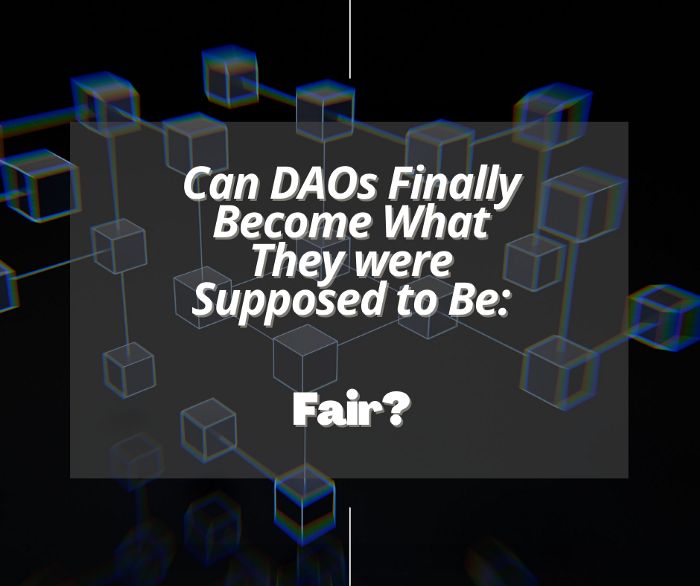 The major issue arising from the current voting consensus at DAOs is the uneven distribution of voting power. But, there's a better way to optimize voting
The major issue arising from the current voting consensus at DAOs is the uneven distribution of voting power. But, there's a better way to optimize voting
17. Why I Dream Of A One World Government & New World Order
 The One World Government is becoming a reality - just not in the way you might think.
The One World Government is becoming a reality - just not in the way you might think.
18. The Future of Organizations is Decentralized and DAO
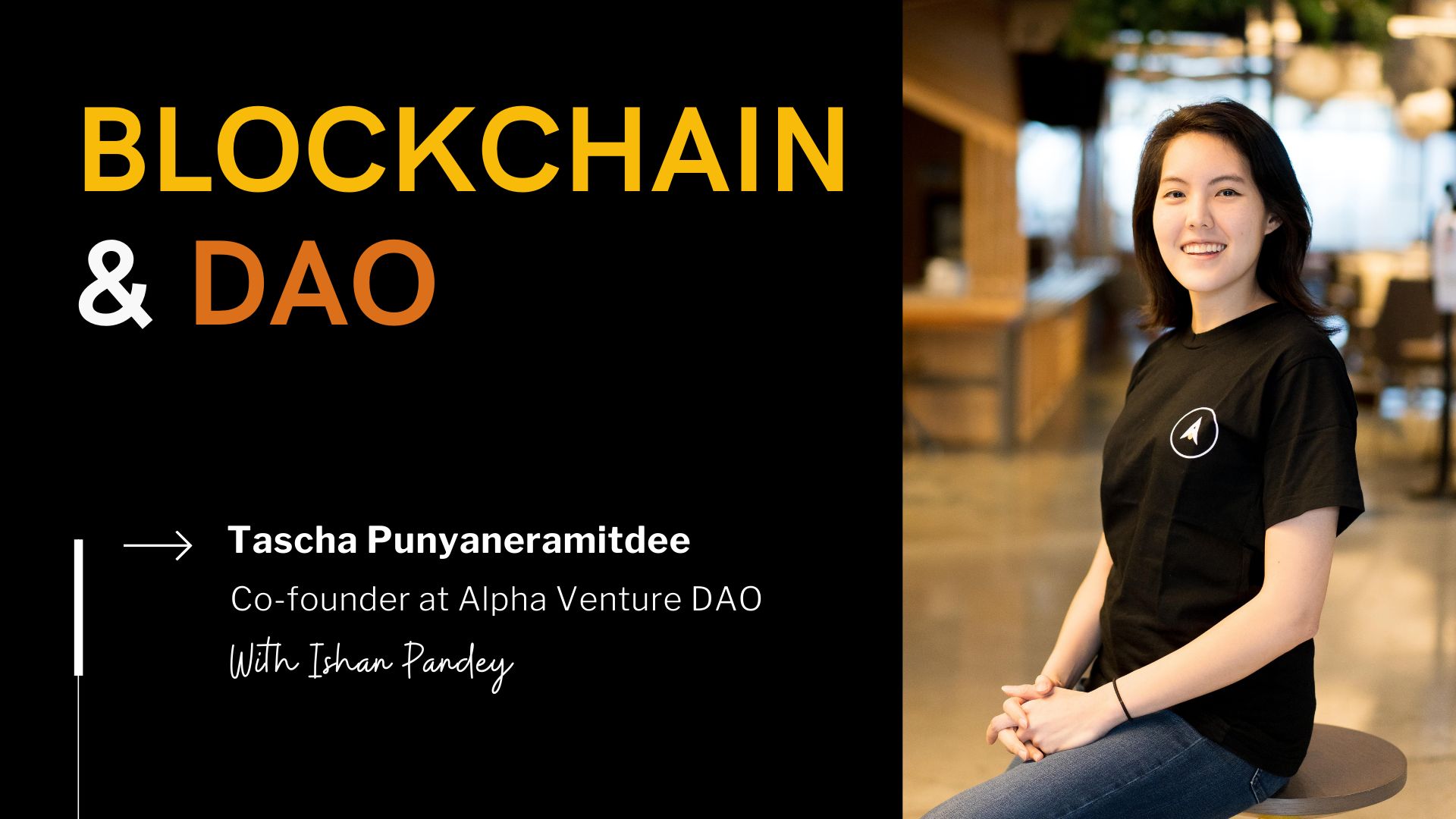 Alpha Venture DAO aims to be a community of Web3 users, thought leaders, investors, and operators who build and innovate Web3 solutions.
Alpha Venture DAO aims to be a community of Web3 users, thought leaders, investors, and operators who build and innovate Web3 solutions.
19. Novel Solutions for Inclusive Digital Currencies
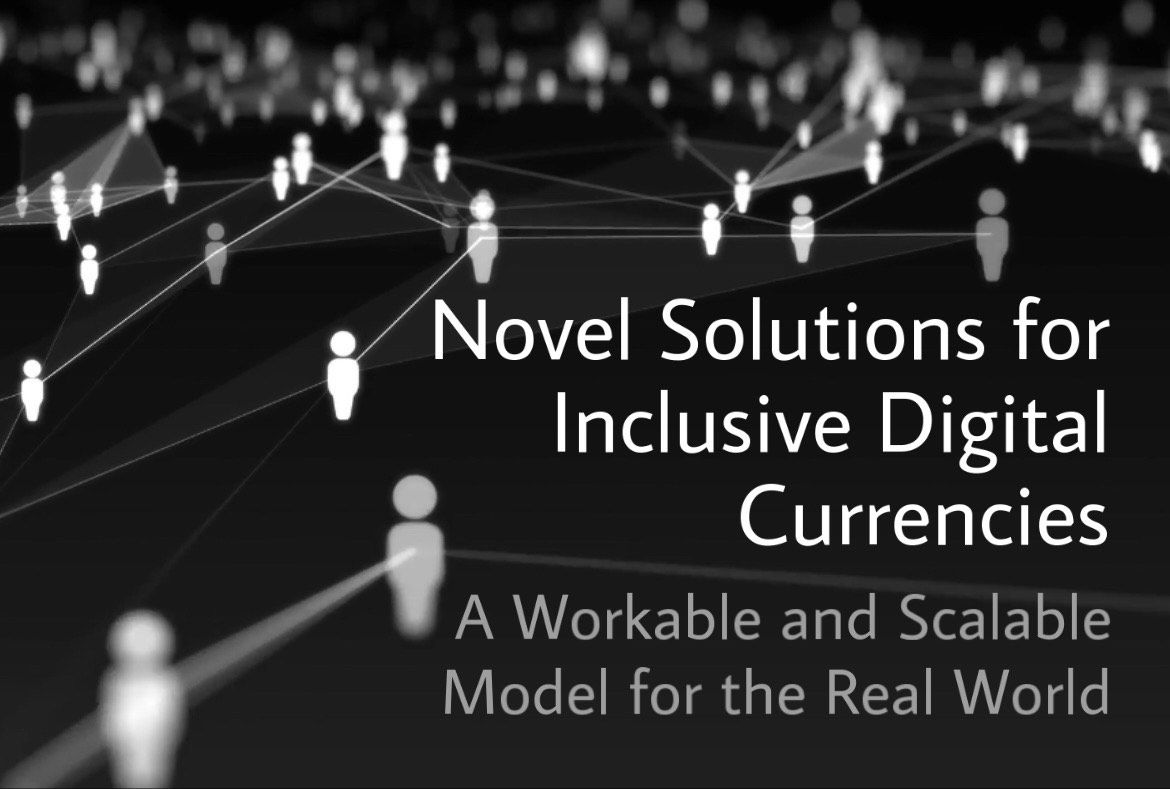 An efficient, interoperable, scalable, and quantum encrypted CBDC solution for sovereign monetary systems of the future, possible today.
An efficient, interoperable, scalable, and quantum encrypted CBDC solution for sovereign monetary systems of the future, possible today.
20. Crypto Will Never Replace a Major Currency (and It Doesn’t Need To)
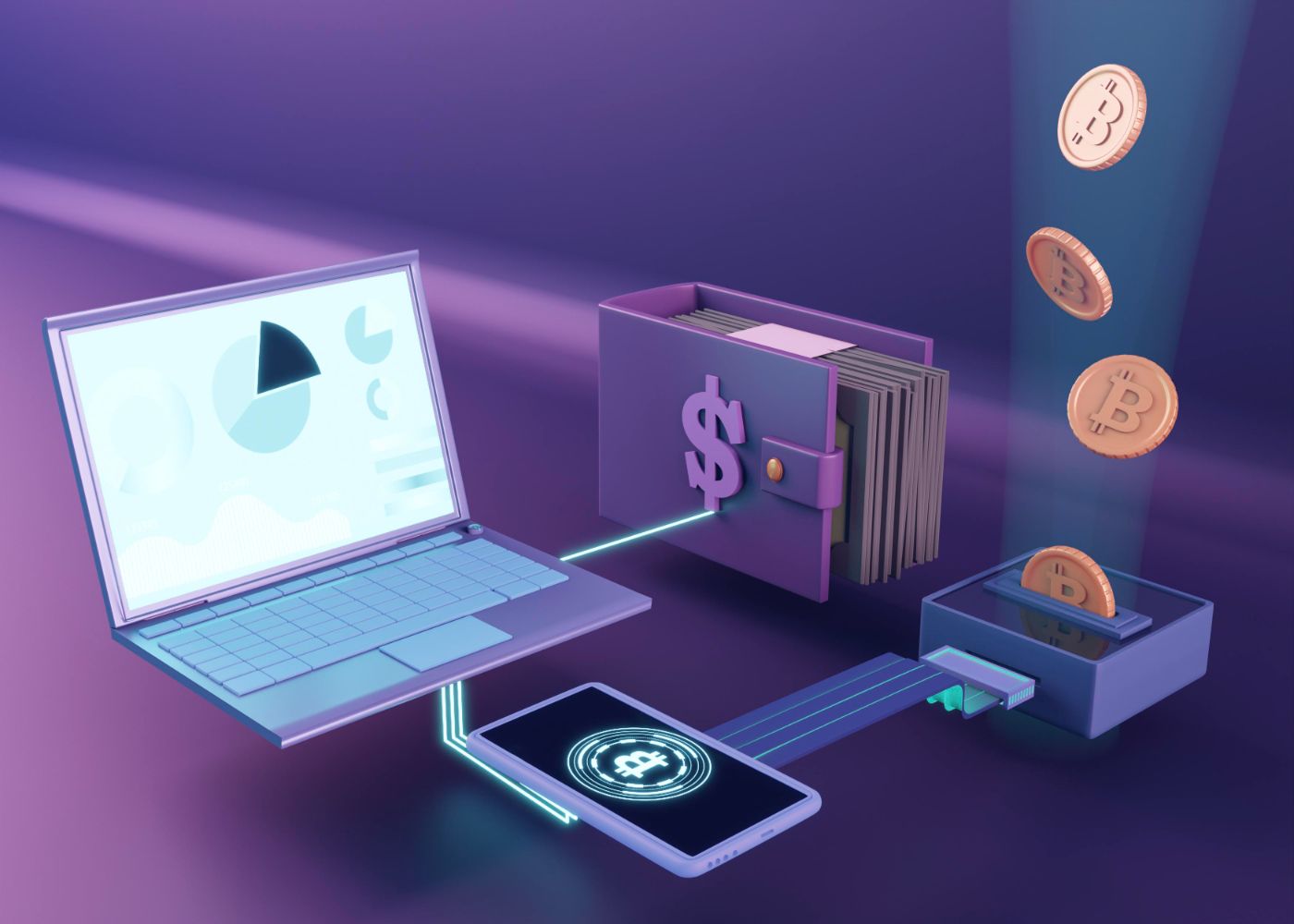 Crypto will never replace a major currency (and it doesn't need to in order to be successful)
Crypto will never replace a major currency (and it doesn't need to in order to be successful)
21. Blockchain Governance and the Concept of Organized Anarchies
 An organized anarchy perspective on power and influence in blockchain decision-making.
An organized anarchy perspective on power and influence in blockchain decision-making.
22. "Success will be found because developers are lazy"
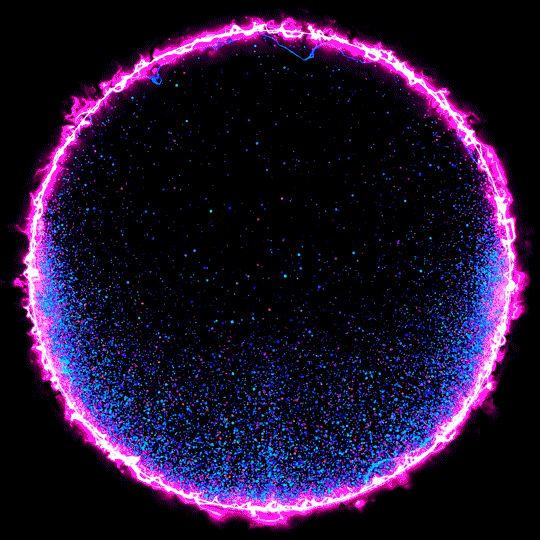 Ever wonder why you are felling anxious about the Universe? Come here to find out why!
Ever wonder why you are felling anxious about the Universe? Come here to find out why!
23. Using Blockchain for Effective Governance
 Blockchain is secure, trusted, and transparent, making it an ideal technology for governance. This article explores how governments can adopt Blockchain.
Blockchain is secure, trusted, and transparent, making it an ideal technology for governance. This article explores how governments can adopt Blockchain.
24. What is Quadratic Voting?
 Quadratic Voting is a method of collective decision-making in which a participant votes not just for or against an issue, but also expresses how strongly they feel about it. It can help protect the interests of small groups of voters that care deeply about particular issues. Quadratic Voting can be used in democratic institutions, in corporate governance, and blockchain-enabled collective decision-making.
Quadratic Voting is a method of collective decision-making in which a participant votes not just for or against an issue, but also expresses how strongly they feel about it. It can help protect the interests of small groups of voters that care deeply about particular issues. Quadratic Voting can be used in democratic institutions, in corporate governance, and blockchain-enabled collective decision-making.
25. From DOJ Settlement, Facebook to Eliminate Tool that Enables Discriminatory Advertising
 Facebook has agreed to eliminate features in its advertising business that allow advertisers to discriminate against groups of people.
Facebook has agreed to eliminate features in its advertising business that allow advertisers to discriminate against groups of people.
26. Online Communities Are Still Catching Up to My Mother's Garden Club
 The Internet has been plagued by a phenomenon I call “implicit feudalism”: a bias, both cultural and technical, for generating absolutist fiefdoms.
The Internet has been plagued by a phenomenon I call “implicit feudalism”: a bias, both cultural and technical, for generating absolutist fiefdoms.
27. He/Him/Master of Discovery
 "Ditch the ‘we love working!’ narrative. It’s unattractive."
"Ditch the ‘we love working!’ narrative. It’s unattractive."
28. The #NoFork Movement, OR The Real Reason Why We Need DAOs
 Everyone knows that forking is risky, expensive, and potential destructive. But none of those problems are the real reason I'm obsessed with #nofork problems.
Everyone knows that forking is risky, expensive, and potential destructive. But none of those problems are the real reason I'm obsessed with #nofork problems.
29. Governance without Government
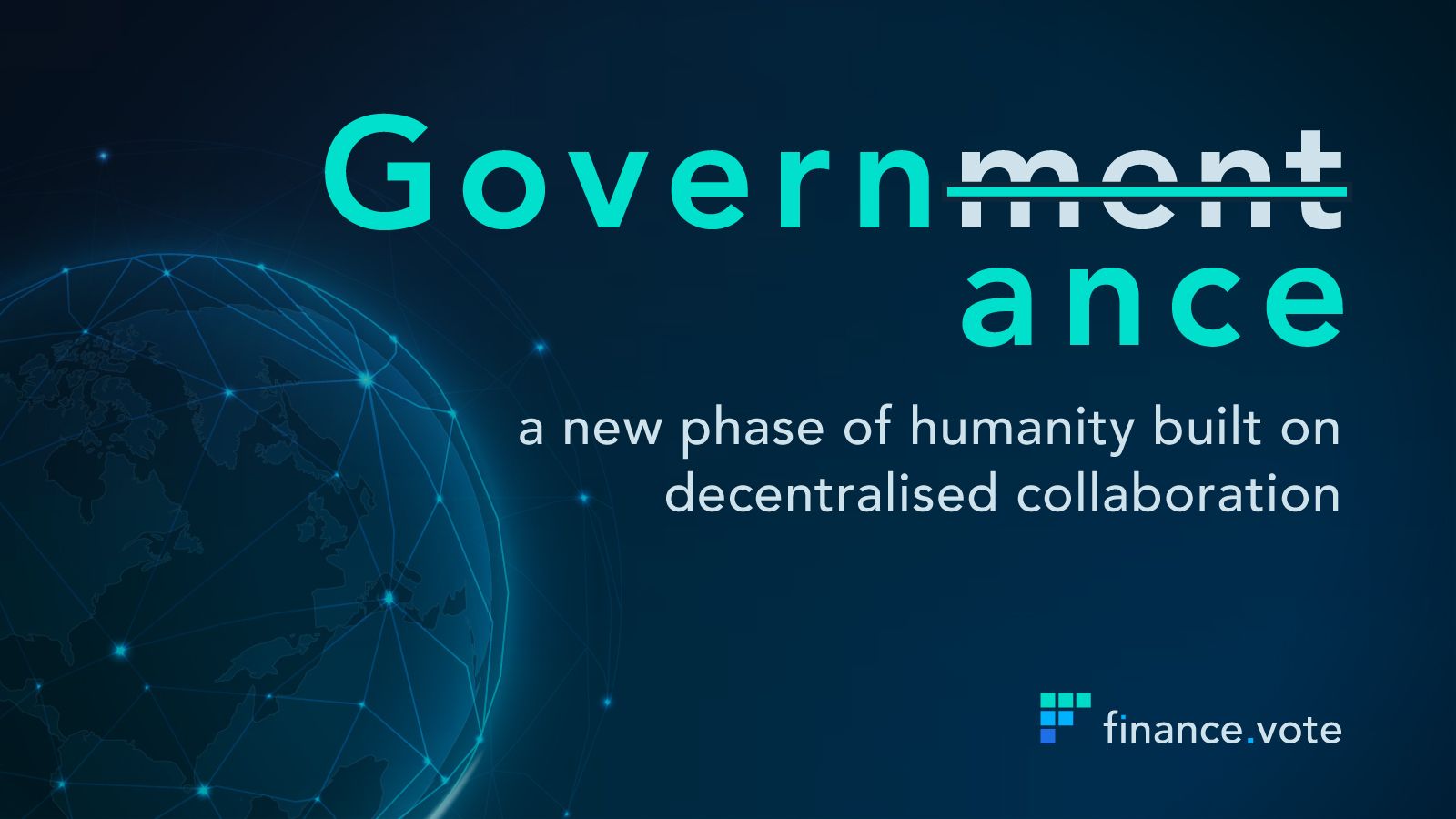 A new phase of humanity built on decentralized collaboration.
A new phase of humanity built on decentralized collaboration.
30. Are Bitcoin Investments Legal?
 Given its nature as a decentralized digital asset, Bitcoin's legal status was always going to cause major debate.
Given its nature as a decentralized digital asset, Bitcoin's legal status was always going to cause major debate.
31. How To Establish Better Governance
 Recently, one of our Site Reliability Engineers (SRE) noticed a workload running in our cluster which he hasn’t seen before. The workload was consuming some resources and the SRE wanted to apply some updates to the cluster but was not sure who owns the workload, and doesn’t know if his updates would have an impact on it or not.
Recently, one of our Site Reliability Engineers (SRE) noticed a workload running in our cluster which he hasn’t seen before. The workload was consuming some resources and the SRE wanted to apply some updates to the cluster but was not sure who owns the workload, and doesn’t know if his updates would have an impact on it or not.
32. The Importance of Decentralization and Governance in Crypto
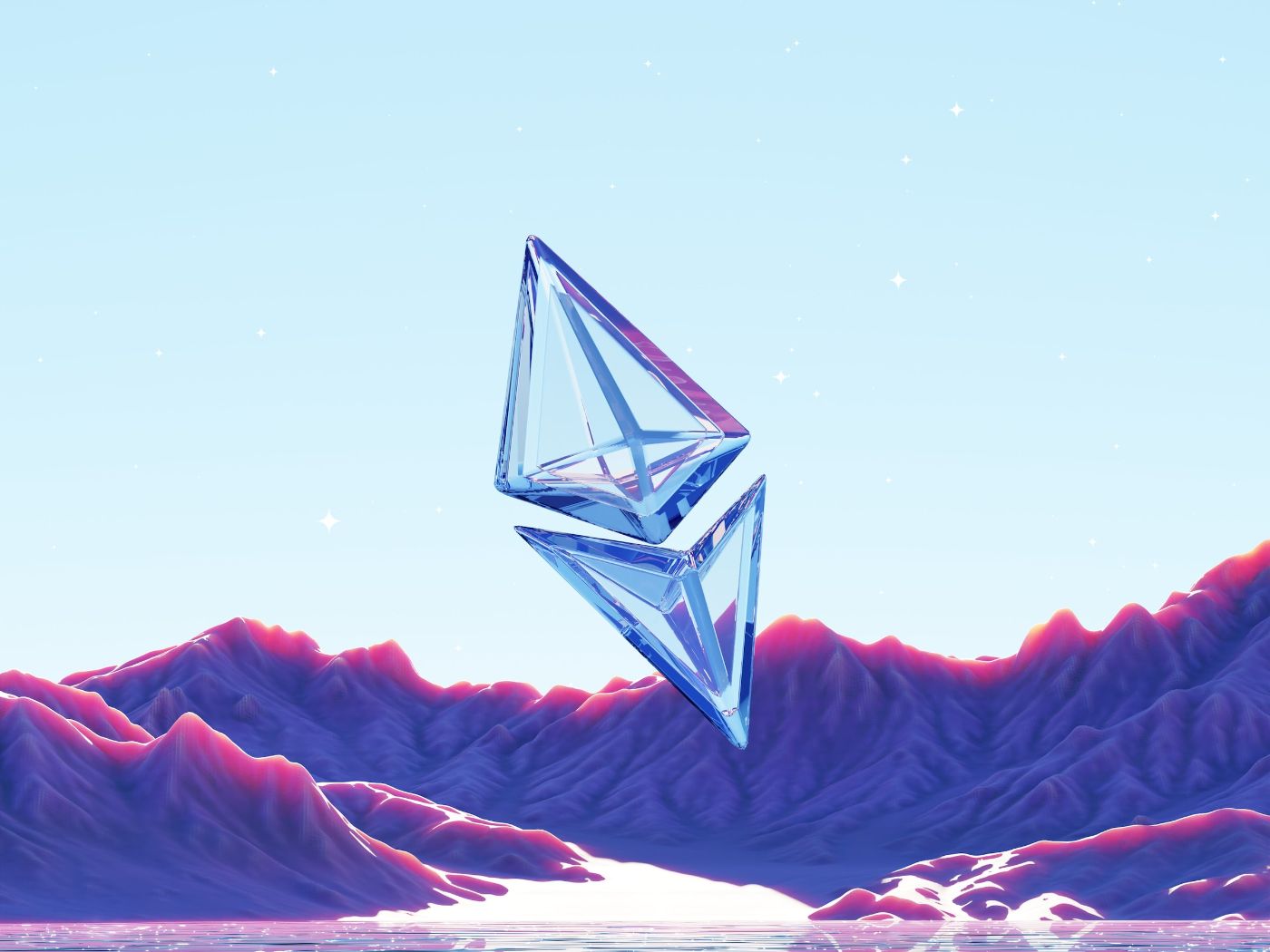 The past few decades have shown us, time and time again, that centralized financial systems are incredibly vulnerable.
The past few decades have shown us, time and time again, that centralized financial systems are incredibly vulnerable.
33. How to Improve Model Quality in Machine Learning
 Model quality is dependent on minimizing the model error over the training dataset and maximizing model confidence over unknown samples to prevent overfitting.
Model quality is dependent on minimizing the model error over the training dataset and maximizing model confidence over unknown samples to prevent overfitting.
34. The Principles of Information Engineering on the Internet
 I envision that the future of Internet, Cyber Laws, Info Security & Governance will be very closely based on these ideas…Information Engineering Principles
I envision that the future of Internet, Cyber Laws, Info Security & Governance will be very closely based on these ideas…Information Engineering Principles
35. 7 Events That May Shape the Global Economy in 2023
 The following black swan events, if they occur, may have far-reaching effects on the state of the global economy in 2023.
The following black swan events, if they occur, may have far-reaching effects on the state of the global economy in 2023.
36. Distributed Governance and Anonymity: A Bad Idea
 One of the big debates in the Genesis DAO started by DAOstack was the question of anonymity. Should people be able to make proposals and ask for budgets without providing a real identity?
One of the big debates in the Genesis DAO started by DAOstack was the question of anonymity. Should people be able to make proposals and ask for budgets without providing a real identity?
37. Proposal making in DAOs: the limitations of “Anyone Proposes Anything”
 If democracy were equivalent to voting, we wouldn’t need separate words to describe them. Unfortunately, when it comes to DAOs, too often, the focus is on the voting mechanisms, with an assumption that “anyone can propose anything” is both fair and sufficient. Some DAOs are very successful with this methodology, but it doesn’t scale well, nor does it account for the variety in the types of decisions that an organization makes.
If democracy were equivalent to voting, we wouldn’t need separate words to describe them. Unfortunately, when it comes to DAOs, too often, the focus is on the voting mechanisms, with an assumption that “anyone can propose anything” is both fair and sufficient. Some DAOs are very successful with this methodology, but it doesn’t scale well, nor does it account for the variety in the types of decisions that an organization makes.
38. Closing The Gap Between Companies & DAOs
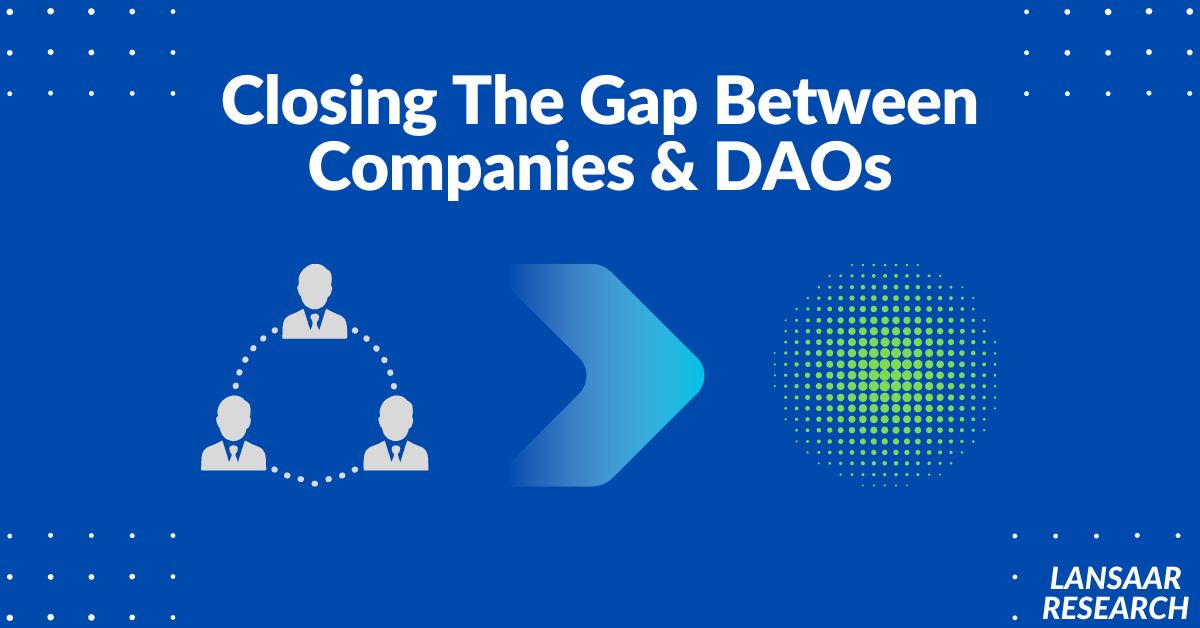 Decentralized Autonomous Organizations (DAOs) are a utopian idea. Today’s organizations - corporations, government agencies, and non-profit organizations - have a jurisdiction. DAOs are everywhere and nowhere. Today’s organizations embrace hierarchy and have governing boards and managers. DAOs are flat and they make decisions either by number of votes from token-holders (participatory DAOs) or by the rules of the code itself (algorithmic DAOs). Today’s organizations require people to routinely conduct legally-required functions, such as paying employees or buying insurance. DAO users and counter-parties are compensated automatically through smart contracts.
Decentralized Autonomous Organizations (DAOs) are a utopian idea. Today’s organizations - corporations, government agencies, and non-profit organizations - have a jurisdiction. DAOs are everywhere and nowhere. Today’s organizations embrace hierarchy and have governing boards and managers. DAOs are flat and they make decisions either by number of votes from token-holders (participatory DAOs) or by the rules of the code itself (algorithmic DAOs). Today’s organizations require people to routinely conduct legally-required functions, such as paying employees or buying insurance. DAO users and counter-parties are compensated automatically through smart contracts.
39. The State of the DAO: Rise, Fall, and Rise
 The last few weeks have seen some major failures in the area of DAO and distributed governance. They’ve also marked a revival of energy for DAO technology, with new initiatives that seem to pick up where the failures left a gap.
The last few weeks have seen some major failures in the area of DAO and distributed governance. They’ve also marked a revival of energy for DAO technology, with new initiatives that seem to pick up where the failures left a gap.
40. A Taxonomy for Open Source Software Companies: Governance and Commercialization
 There is a lot of complexity in the world of open source, yet there is also surprising commonality among governance approaches and commercialization strategies
There is a lot of complexity in the world of open source, yet there is also surprising commonality among governance approaches and commercialization strategies
41. Can’t Buy Me Love: An Argument for Implementing Illiquidity
 Mapping human values into code. Hint: its hard to measure them in bitcoin.
Mapping human values into code. Hint: its hard to measure them in bitcoin.
42. Time, Space, and DACs: The Way Ahead
 While regarding how to form a DAC, people are too optimistic or ideal. It seems DAC will start from scratch by itself when connecting people (it's definitely not, remember the Guild that the Mandalorian has joined, it is a typical DAC, you can see how complicated it is), no clear path was given or discussed so far. DAC would be the mainstream value creation entity in the Value Internet Era.
While regarding how to form a DAC, people are too optimistic or ideal. It seems DAC will start from scratch by itself when connecting people (it's definitely not, remember the Guild that the Mandalorian has joined, it is a typical DAC, you can see how complicated it is), no clear path was given or discussed so far. DAC would be the mainstream value creation entity in the Value Internet Era.
43. How to Ensure DevOps Security in CI/CD Environments
 Security is a product feature, and everyone involved in the DevOps workflow is responsible for it. Here are some key measures to ensure greater security.
Security is a product feature, and everyone involved in the DevOps workflow is responsible for it. Here are some key measures to ensure greater security.
44. Minecraft May Offer the Best Model for Internet Governance
 Looking at today’s Internet, it is easy to wonder: whatever happened to the dream that it would be good for democracy? Well, looking past the scandals of big social media and scary plays of autocracy’s hackers, I think there’s still room for hope. The web remains full of small experiments in self-governance. It’s still happening, quietly maybe, but at such a tremendous scale that we have a chance, not only to revive the founding dream of the web, but to bring modern scientific methods to basic millenia-old questions about self-governance, and how it works.
Looking at today’s Internet, it is easy to wonder: whatever happened to the dream that it would be good for democracy? Well, looking past the scandals of big social media and scary plays of autocracy’s hackers, I think there’s still room for hope. The web remains full of small experiments in self-governance. It’s still happening, quietly maybe, but at such a tremendous scale that we have a chance, not only to revive the founding dream of the web, but to bring modern scientific methods to basic millenia-old questions about self-governance, and how it works.
45. How’s That Open Source Governance Working for You?
 Isn’t it weird that the radically democratic miracle of open-source collaboration is so full of monarchical dictatorships?
Isn’t it weird that the radically democratic miracle of open-source collaboration is so full of monarchical dictatorships?
46. Speculative AMMs Are the Future of DeFi
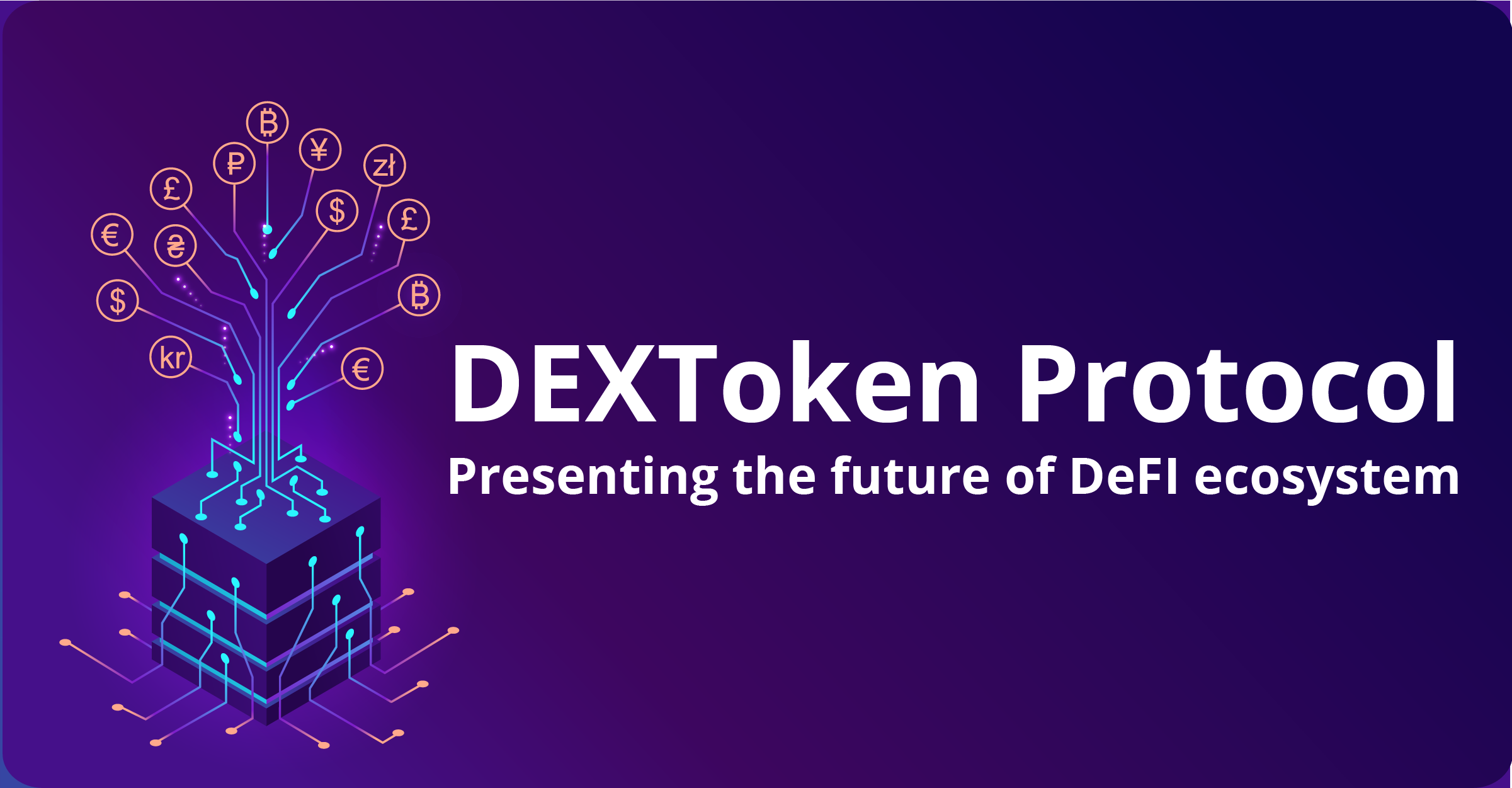 Since the last two years, a significant upsurge has taken place in the Defi space. Gone are the days where you had limited options for what you can do with your crypto.
Since the last two years, a significant upsurge has taken place in the Defi space. Gone are the days where you had limited options for what you can do with your crypto.
[47. Will Covid-19 Spur Innovation:
4 Insights for Entrepreneurs](https://hackernoon.com/will-covid-19-spur-innovation-4-insights-for-entrepreneurs-us8j3yj5)
 The coronavirus pandemic has been life changing for all of us. National lockdowns, quarantines, the #stayathome campaign, remote work, interrupted travel plans, as well as struggling businesses and economies have accounted for a disruptive start to 2020. One industry that has been put to the test in the time of pandemic is healthcare.
The coronavirus pandemic has been life changing for all of us. National lockdowns, quarantines, the #stayathome campaign, remote work, interrupted travel plans, as well as struggling businesses and economies have accounted for a disruptive start to 2020. One industry that has been put to the test in the time of pandemic is healthcare.
48. One More Level of E-Government Development Everyone Forgot About
 Many countries develop their own E-Government systems nowadays. Experts define several stages of E-Government services development. In the article, we explain how the final level of E-gov services development should work so that its outcomes provide citizens with the maximum possible value.
Many countries develop their own E-Government systems nowadays. Experts define several stages of E-Government services development. In the article, we explain how the final level of E-gov services development should work so that its outcomes provide citizens with the maximum possible value.
49. The Future of Governance is DAO
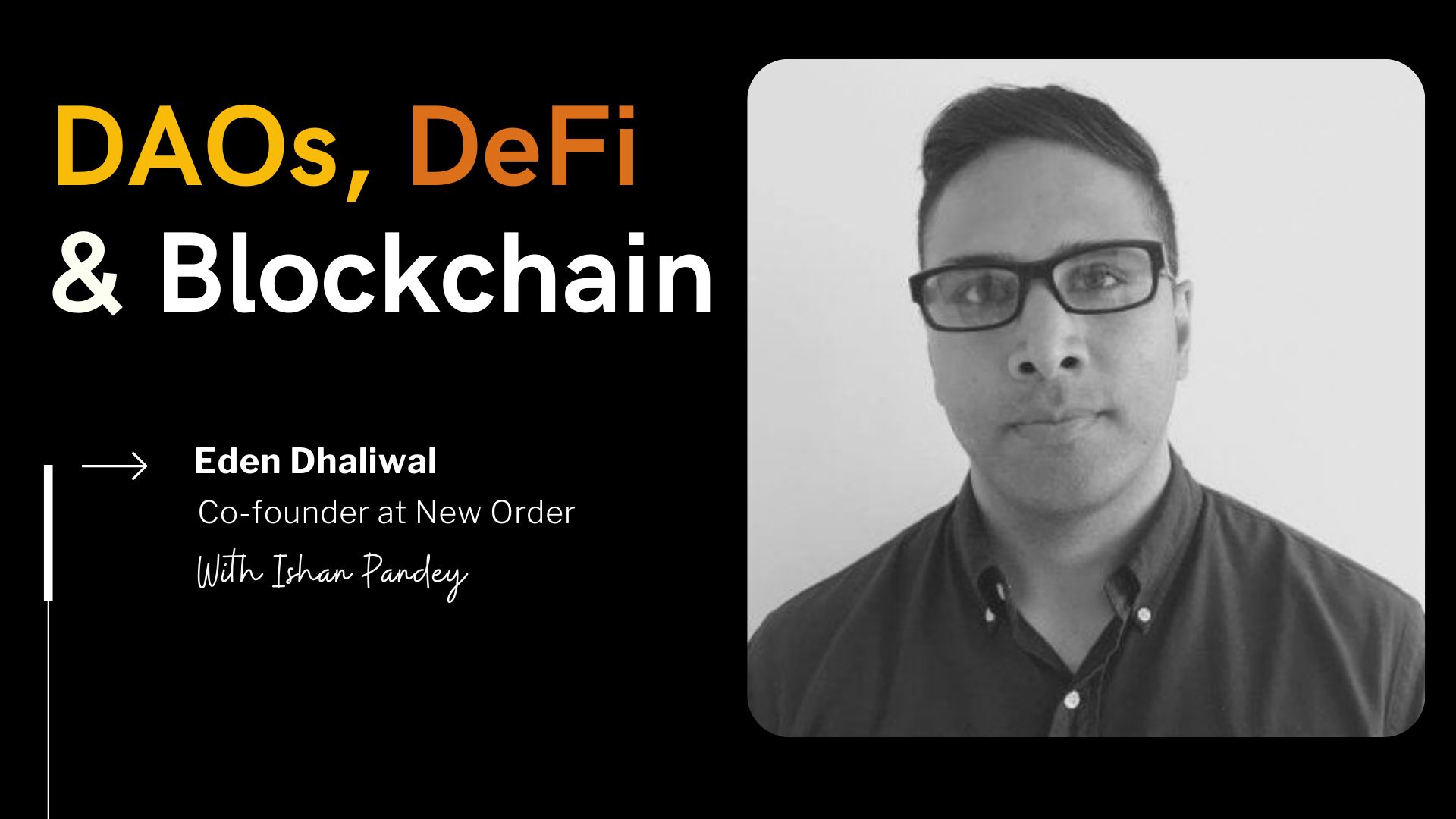 Can we even effectively regulate a global network of computers upon which these contracts are executed? My gut reaction is this will be very difficult.
Can we even effectively regulate a global network of computers upon which these contracts are executed? My gut reaction is this will be very difficult.
50. Balancing Governance and Privacy with the HOPR DAO
 HOPR is building a DAO which can operate legally in the real world without exposing its members to liability.
HOPR is building a DAO which can operate legally in the real world without exposing its members to liability.
51. The Innovation of Web3.0 Governance Mechanism From the Perspective of DAO’s Decentralization
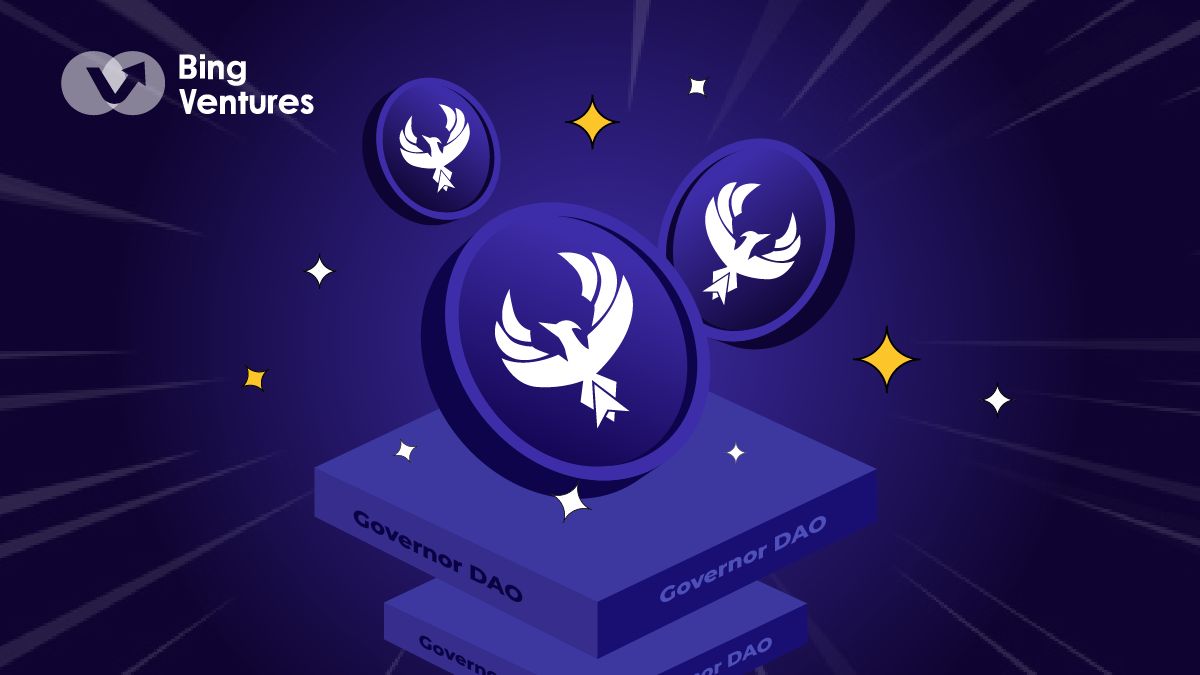 Governance effectiveness is the core metric for tracking community values.
Governance effectiveness is the core metric for tracking community values.
52. Exploring Pros and Cons of DAOs vs. Traditional Vertical Structures
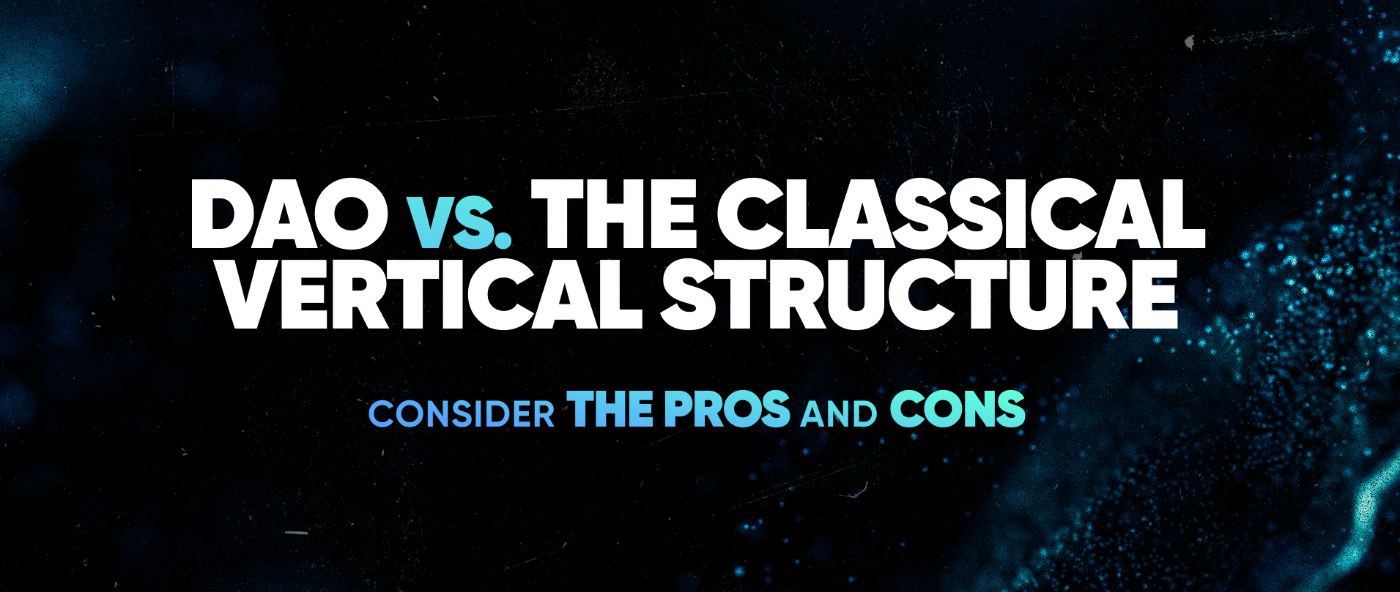 In this article we compare the main pros and cons of the classical control system and DAO. Who will win?
In this article we compare the main pros and cons of the classical control system and DAO. Who will win?
53. [Interview] The Struggles and Successes of Masternode Voting - Dash Core CEO
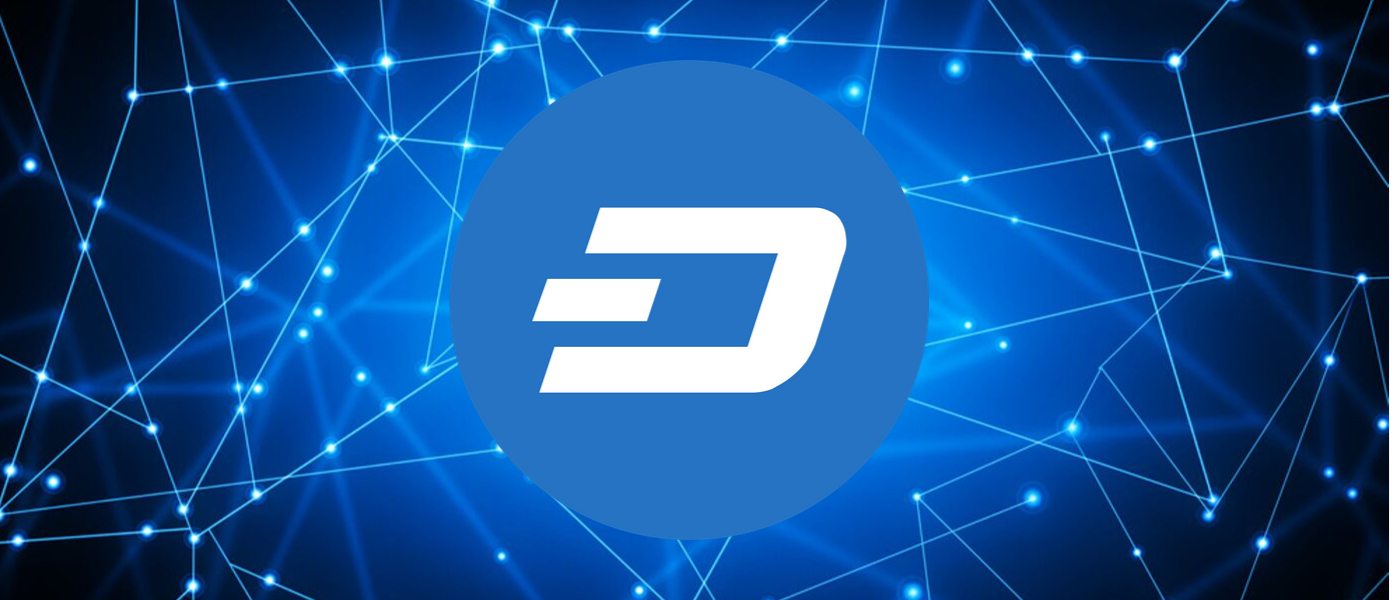 When I dove into the world of crypto and blockchain governance, one of the first projects to capture my attention was Dash.
When I dove into the world of crypto and blockchain governance, one of the first projects to capture my attention was Dash.
54. Compliance by Design is the future of Blockchains - Beni Issembert, CMO at Concordium
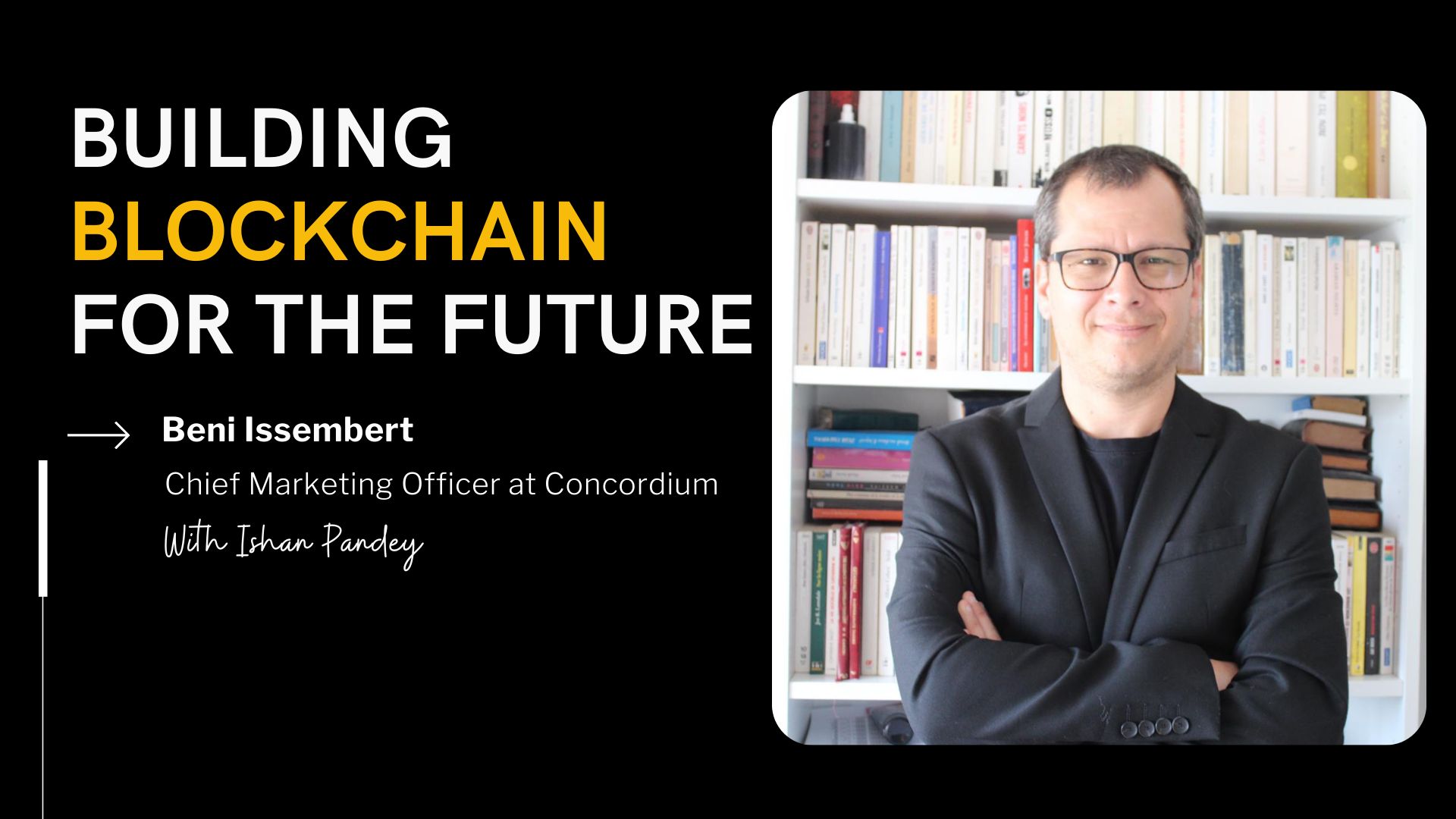 This article talks about compliance by design in a blockchain ecosystem focusing on Zk-protocol and the development of smart contracts using rust language.
This article talks about compliance by design in a blockchain ecosystem focusing on Zk-protocol and the development of smart contracts using rust language.
55. What is Metagovernance?
 In a DAO, unlike a traditional corporation, projects and priorities are voted on by community members.
In a DAO, unlike a traditional corporation, projects and priorities are voted on by community members.
56. Meaningful Crypto Conversations That Aren't About Getting Your First Lambo
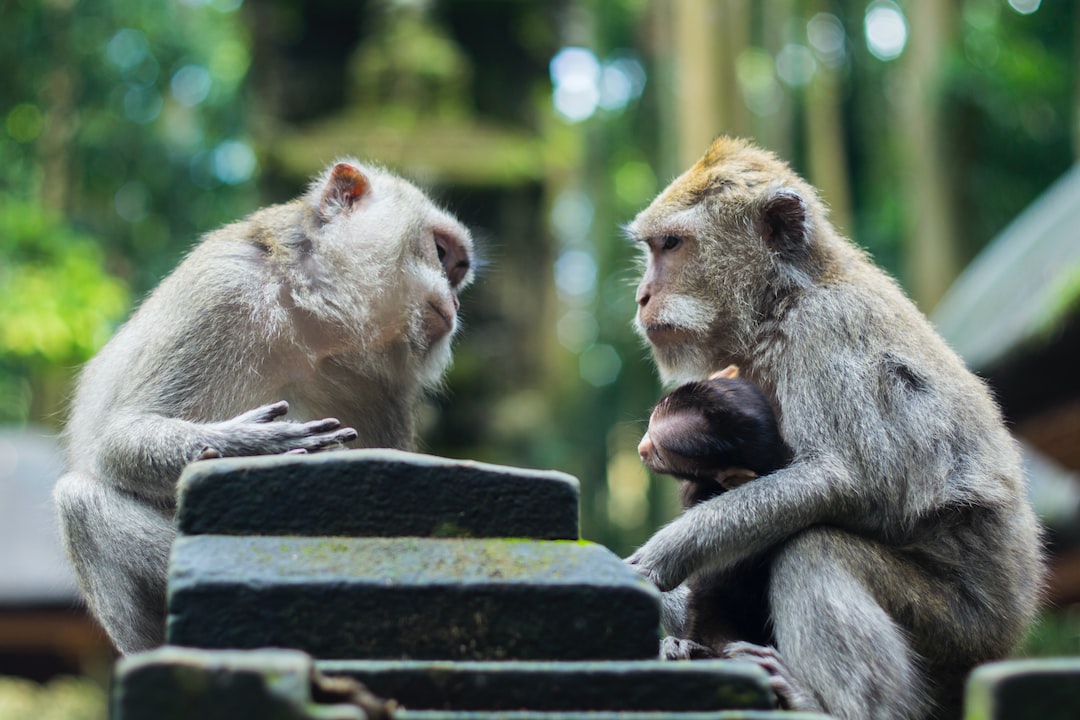
57. An Introduction to AWS SSO VS Cross-account Role-based IAM Access
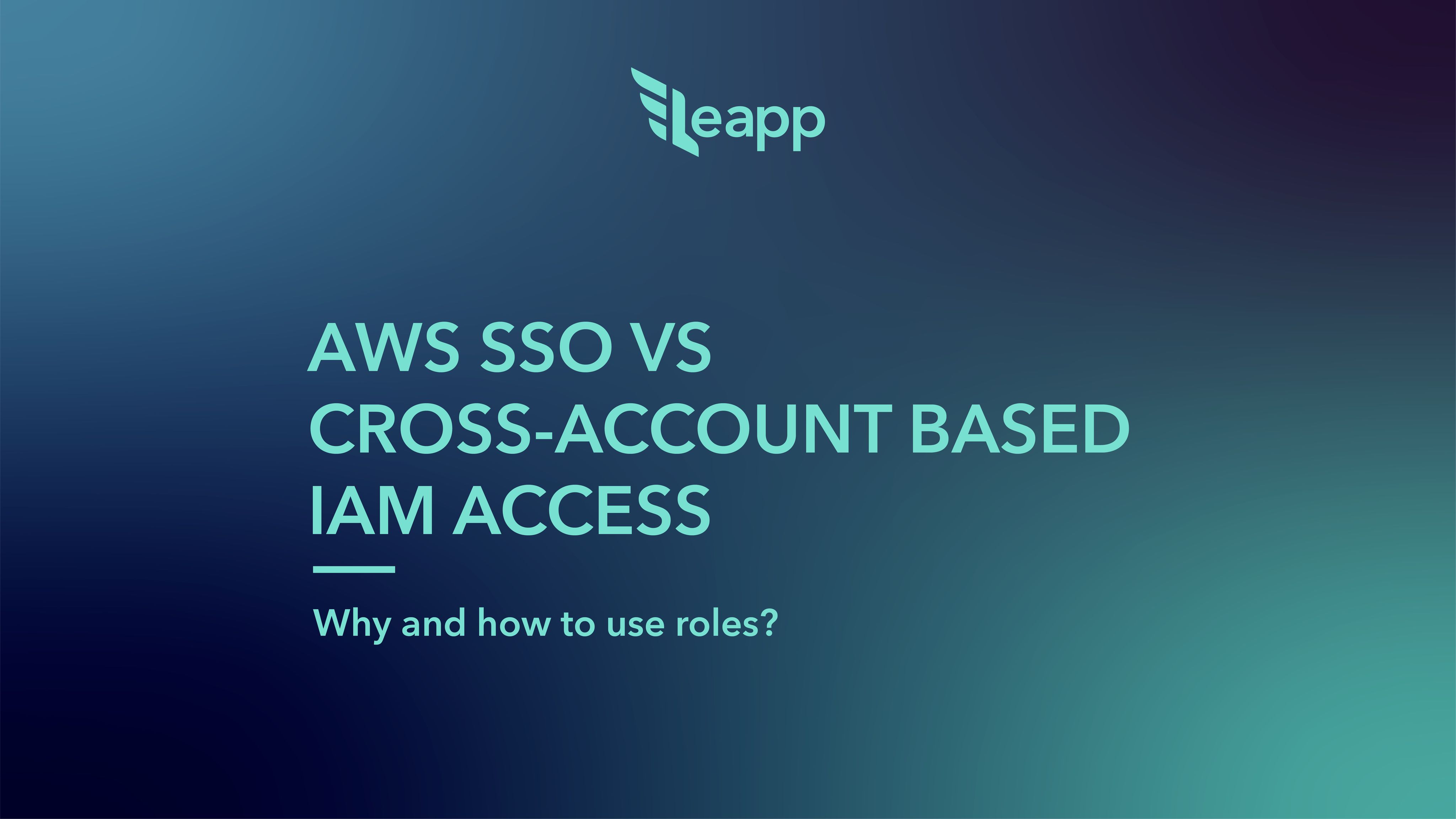 Considered to be the best practices in AWS, one of the most popular ways to maximize AWS's potential is to utilize multiple accounts.
Considered to be the best practices in AWS, one of the most popular ways to maximize AWS's potential is to utilize multiple accounts.
58. Is the Friendshoring Zone Safe for the Global Economy and Supply Chains?
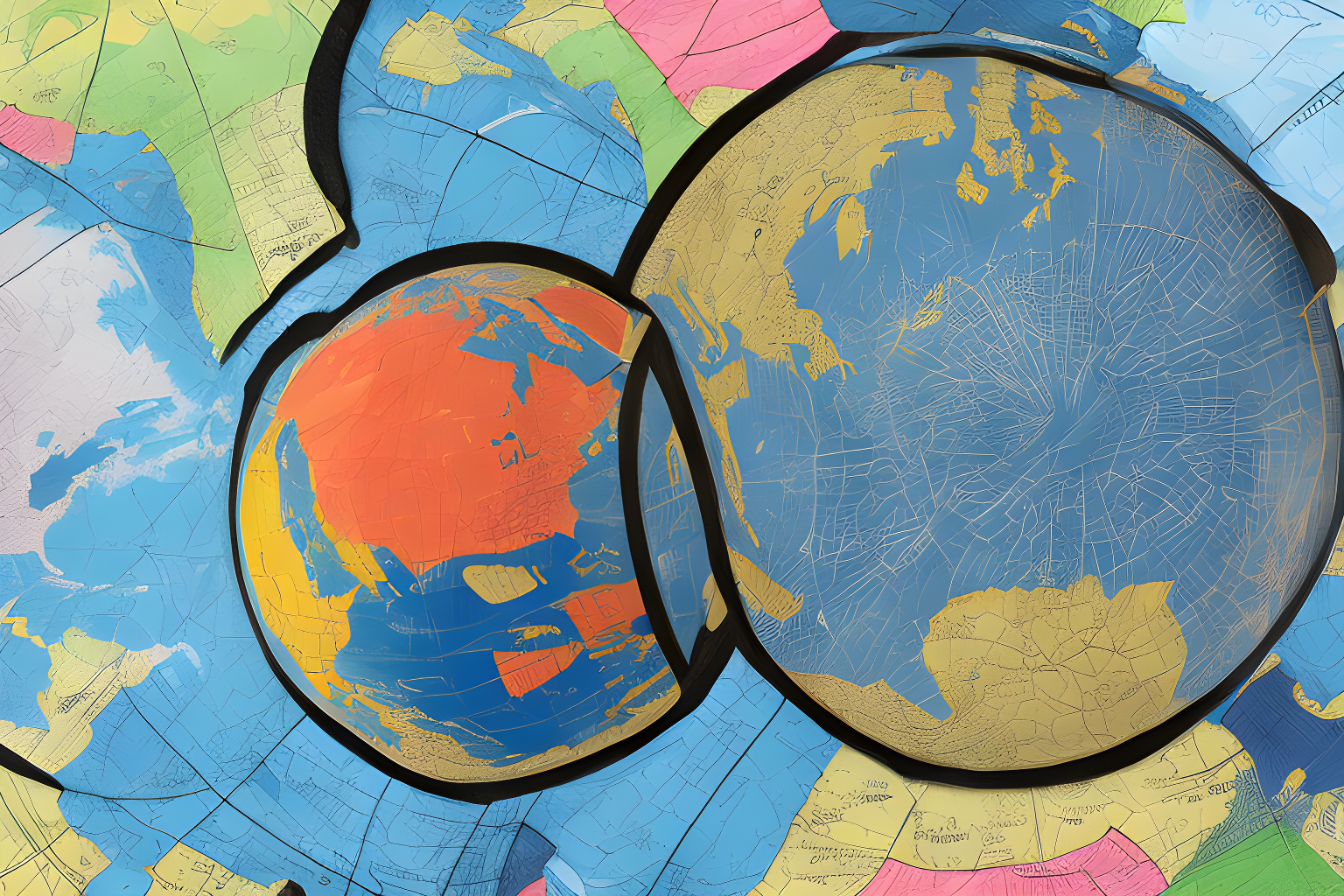 Friendshoring advocates are outsourcing to allied nations. But is the friendshoring zone a boon or bane to the global economy & supply chains? Let's find out.
Friendshoring advocates are outsourcing to allied nations. But is the friendshoring zone a boon or bane to the global economy & supply chains? Let's find out.
59. Optimism - Curse of Big IT Projects and How to Manage It
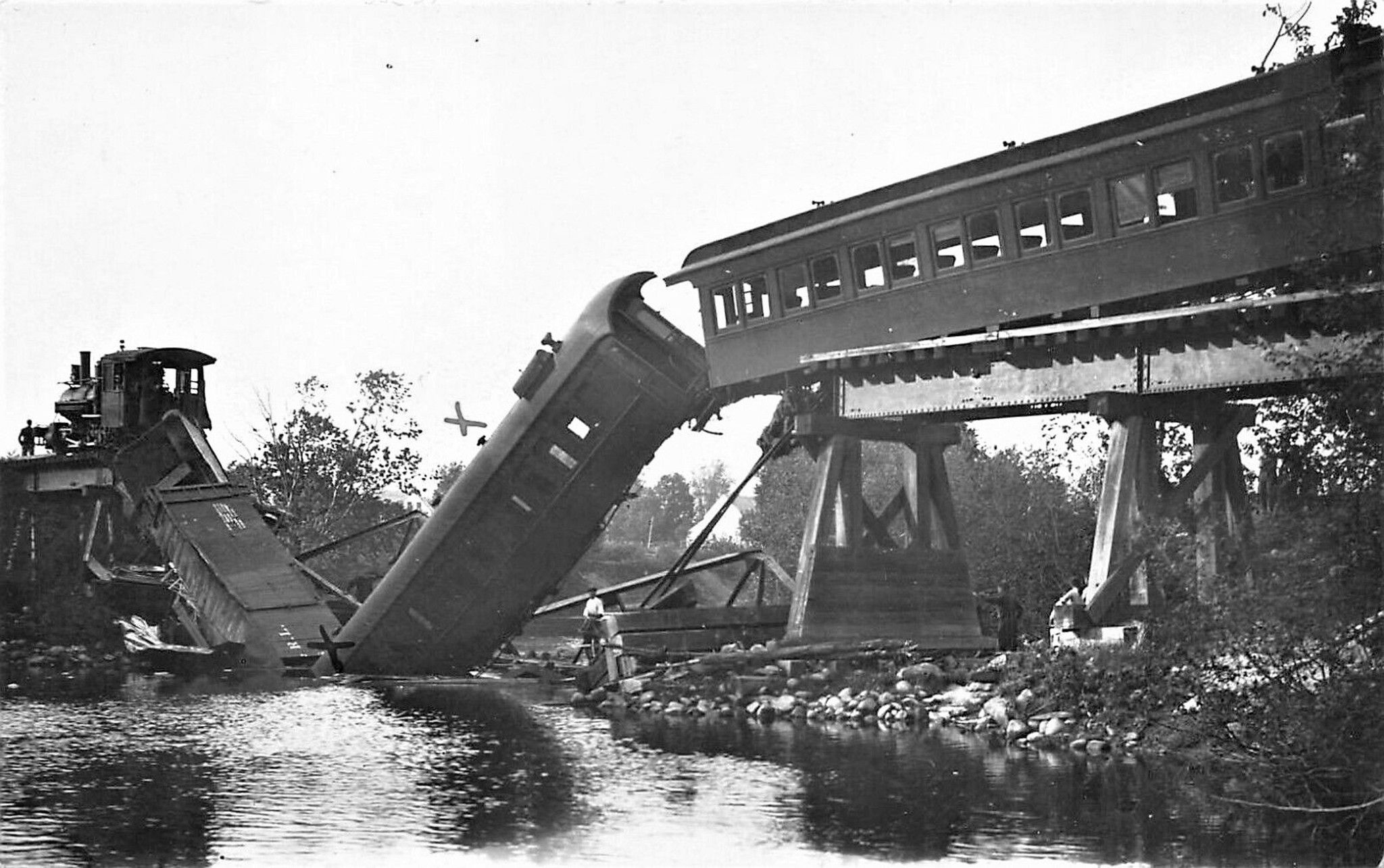 Most of us who have worked on IT projects feel the resonance of Hofstadter's Law:
Most of us who have worked on IT projects feel the resonance of Hofstadter's Law:
60. Distributed Governance and Anonymity: A Bad Idea
 One of the big debates in the Genesis DAO started by DAOstack was the question of anonymity. Should people be able to make proposals and ask for budgets without providing a real identity?
One of the big debates in the Genesis DAO started by DAOstack was the question of anonymity. Should people be able to make proposals and ask for budgets without providing a real identity?
61. Take your time, do it right: Commons Governance
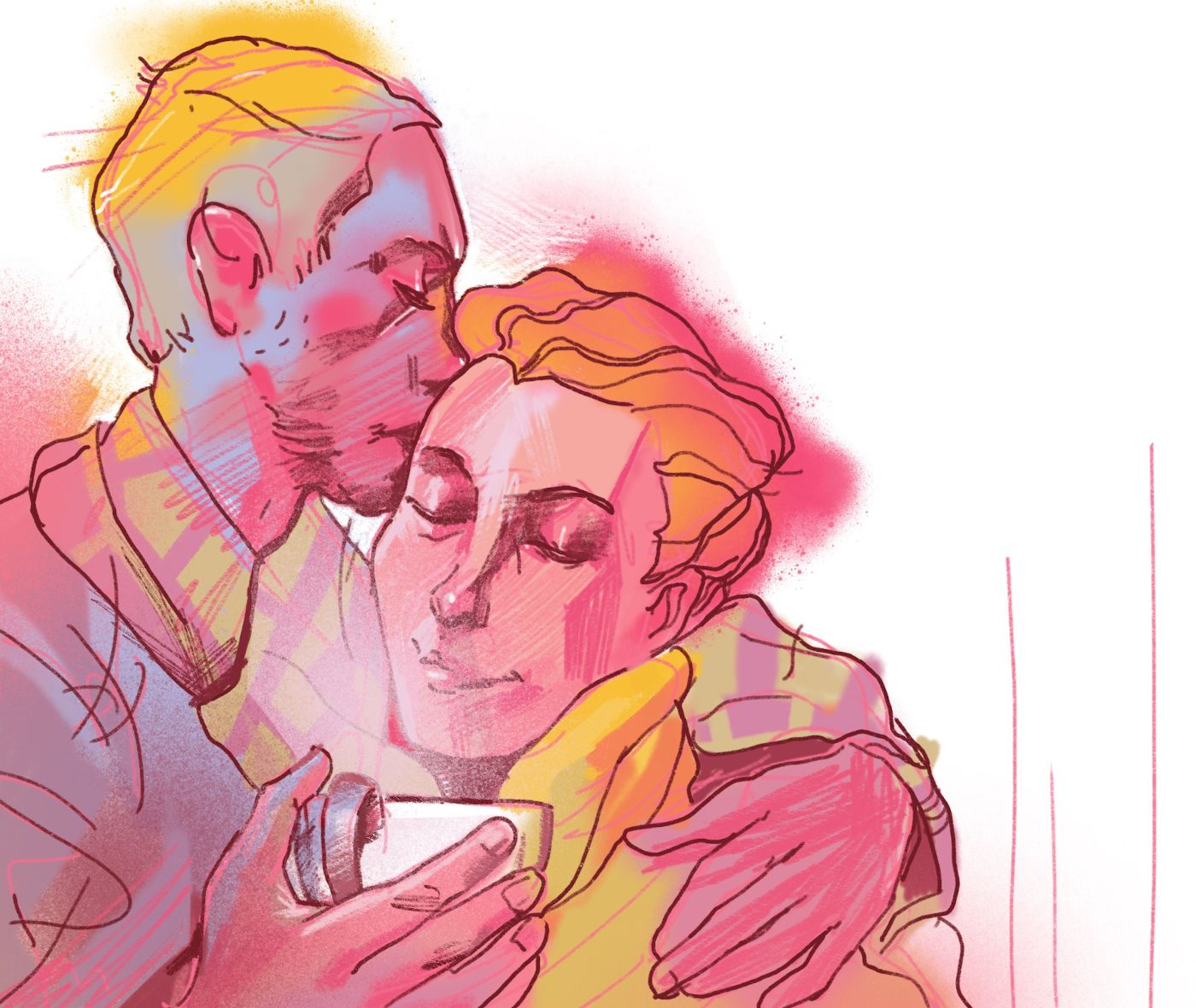 A guide to how DisCO governance specifically articulates the principles and values outlined in the prior chapter.
A guide to how DisCO governance specifically articulates the principles and values outlined in the prior chapter.
62. What Can Make DisCOs Grow
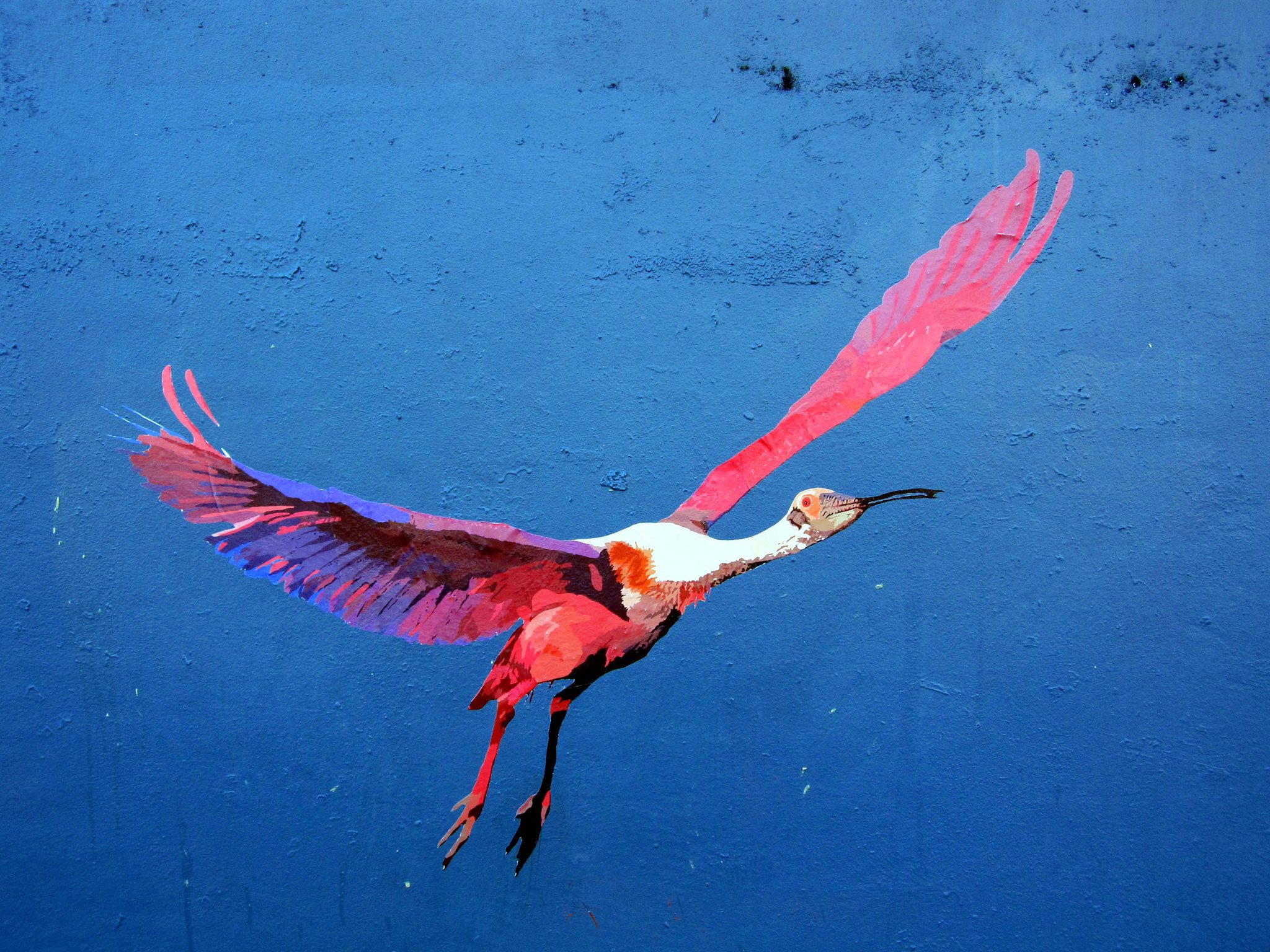 What needs to happen for DisCOs to grow and flourish across the economy?
What needs to happen for DisCOs to grow and flourish across the economy?
63. Build Your Distributed Cooperative Organization with the DisCO CAT
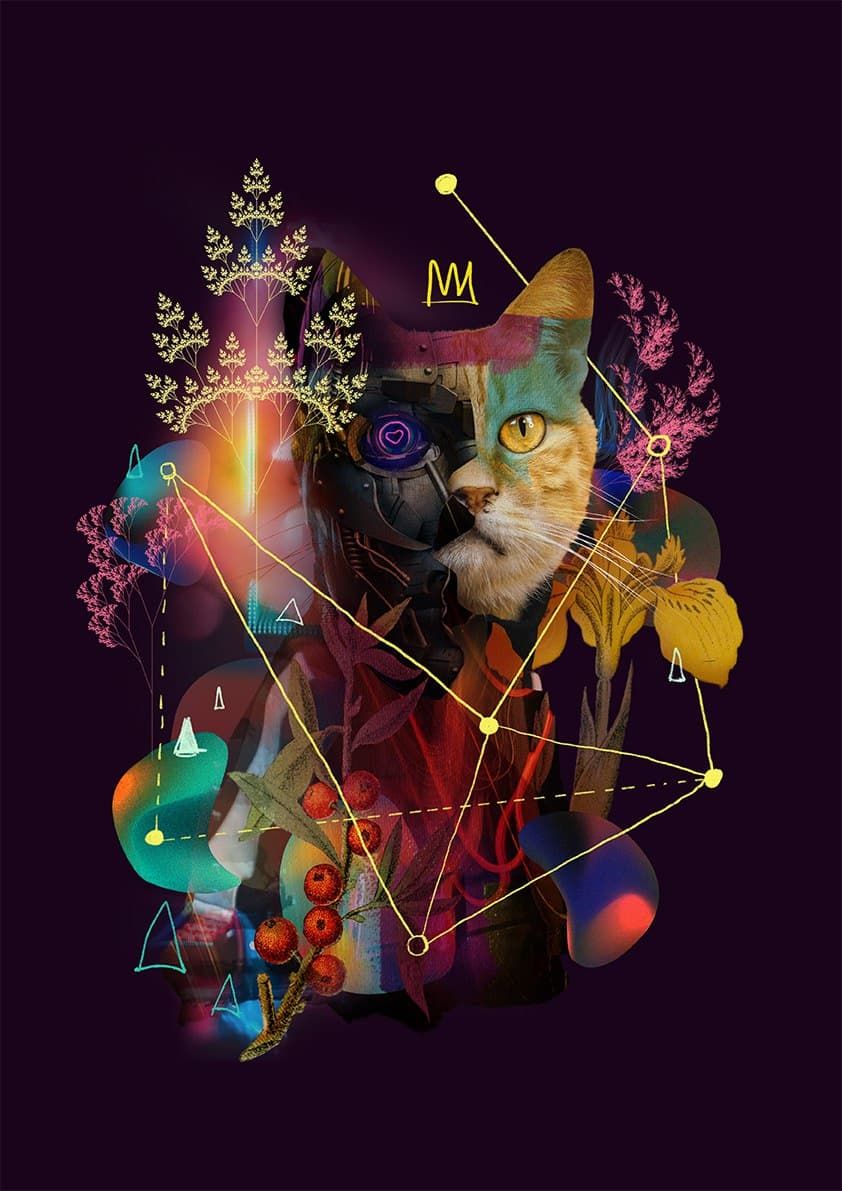 DisCO’s Community Algorithmic Trust, or CAT, a series of modular software platforms designed to enable people to learn about and build viable DisCOs.
DisCO’s Community Algorithmic Trust, or CAT, a series of modular software platforms designed to enable people to learn about and build viable DisCOs.
64. DisCO in 7 Principles and 11 Values
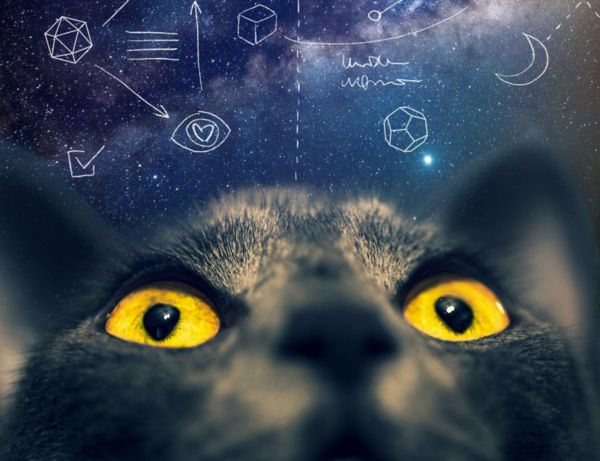 A new framing of the 7 DisCO (Distributed Cooperative Organization) principles with practical examples and an introduction our pilot projects, the DisCO LABS
A new framing of the 7 DisCO (Distributed Cooperative Organization) principles with practical examples and an introduction our pilot projects, the DisCO LABS
65. Care Work First, Code Later: DisCO Philosophy 101
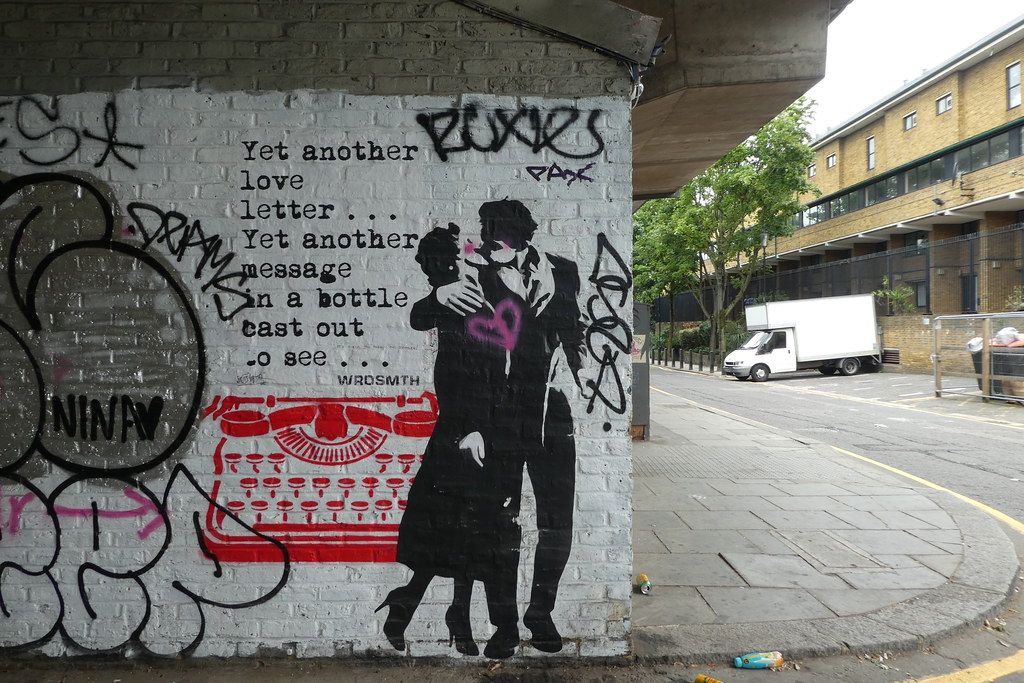 The personal stuff: How and why the recognition of care work is so crucial for change-makers and DisCos.
The personal stuff: How and why the recognition of care work is so crucial for change-makers and DisCos.
Thank you for checking out the 65 most read stories about Governance on HackerNoon.
Visit the /Learn Repo to find the most read stories about any technology.
